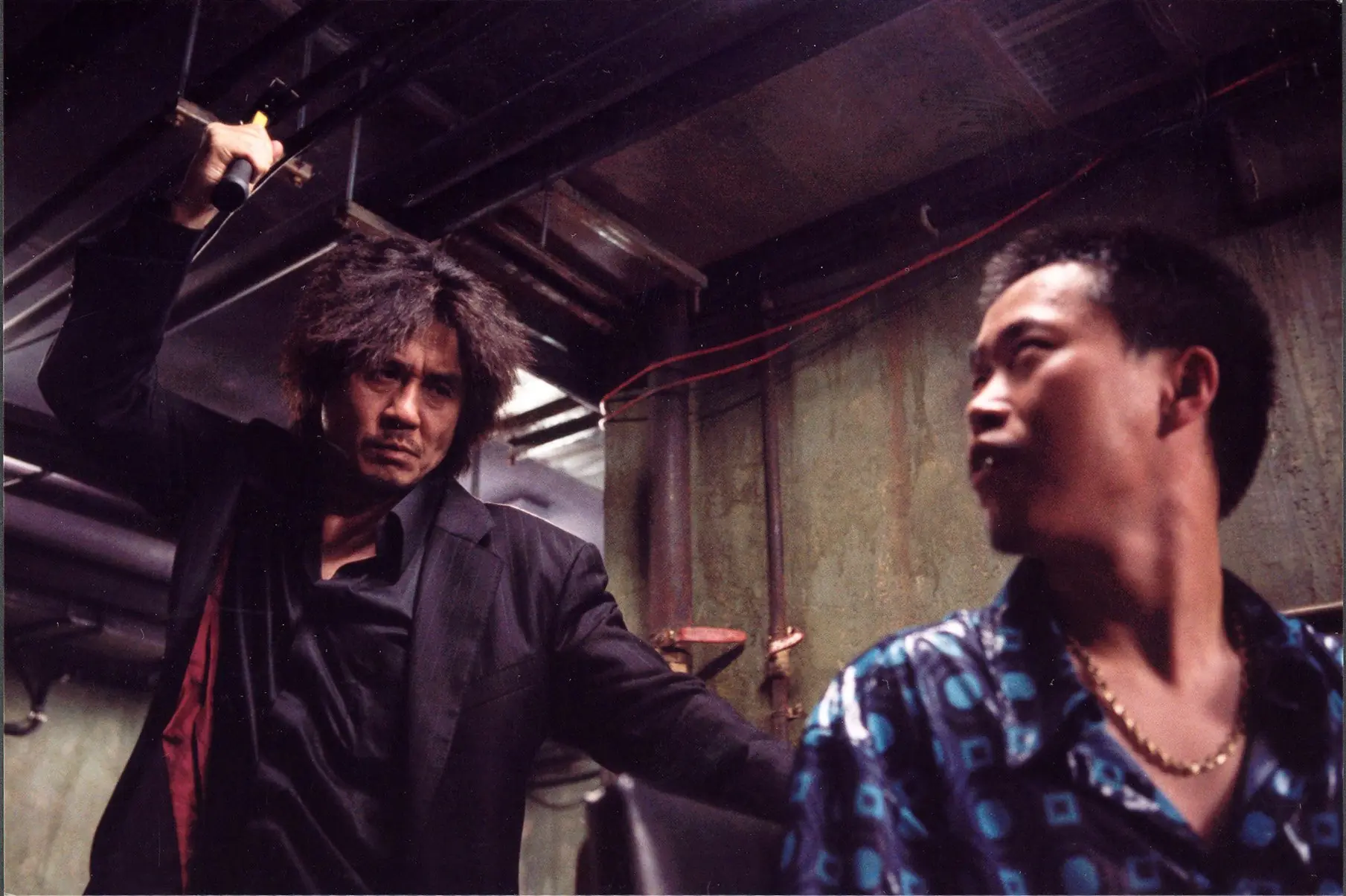The 50 Best THRILLER MOVIES of All Time
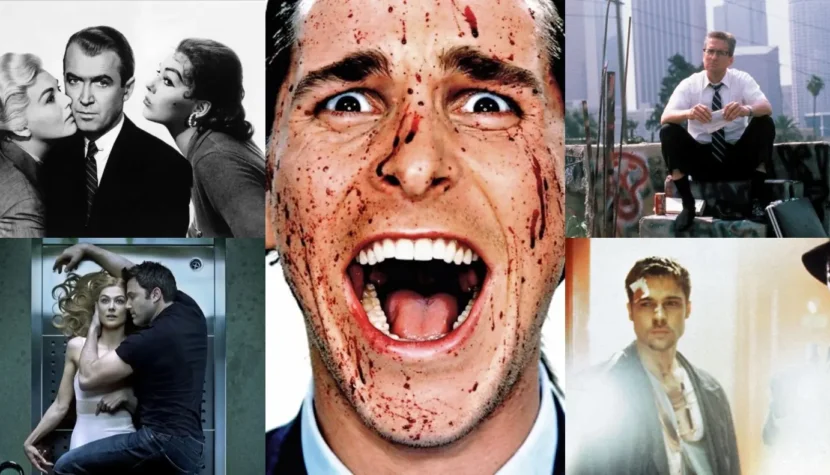
This is the most important feature of the thriller genre. The best thrillers skillfully build tension to evoke anxiety, fear, and uncertainty in the audience—emotions that, when properly controlled, can bring us immense pleasure. We gave you a voting list containing about 150 titles representing this film genre. As usual, you didn’t disappoint us, as your votes formed an interesting ranking full of tension, crime, and mystery. How do you like it? Let us know in the comments.
50.The Skin I Live In (2011)
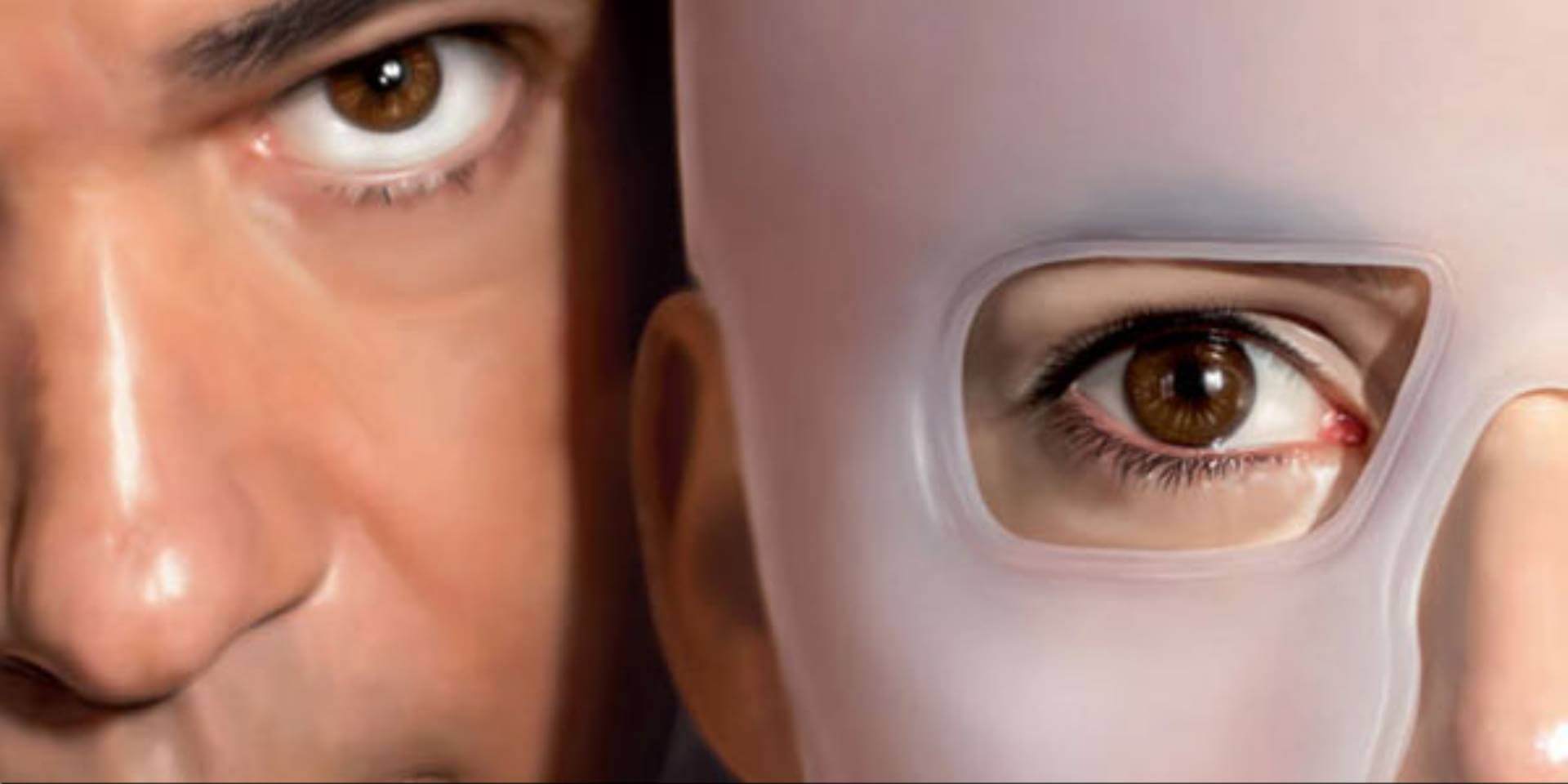
The Skin I Live In is one of the most original thrillers in the history of cinema. Stylish, elegant, brimming with emotions, at times shocking, somewhat absurd, but deeply unsettling and posing serious existential questions. I am convinced that with The Skin I Live In, Almodóvar has joined the canon of legendary thriller filmmakers. And he did it entirely on his own terms. [Przemysław Mudlaff]
49. M (1931)
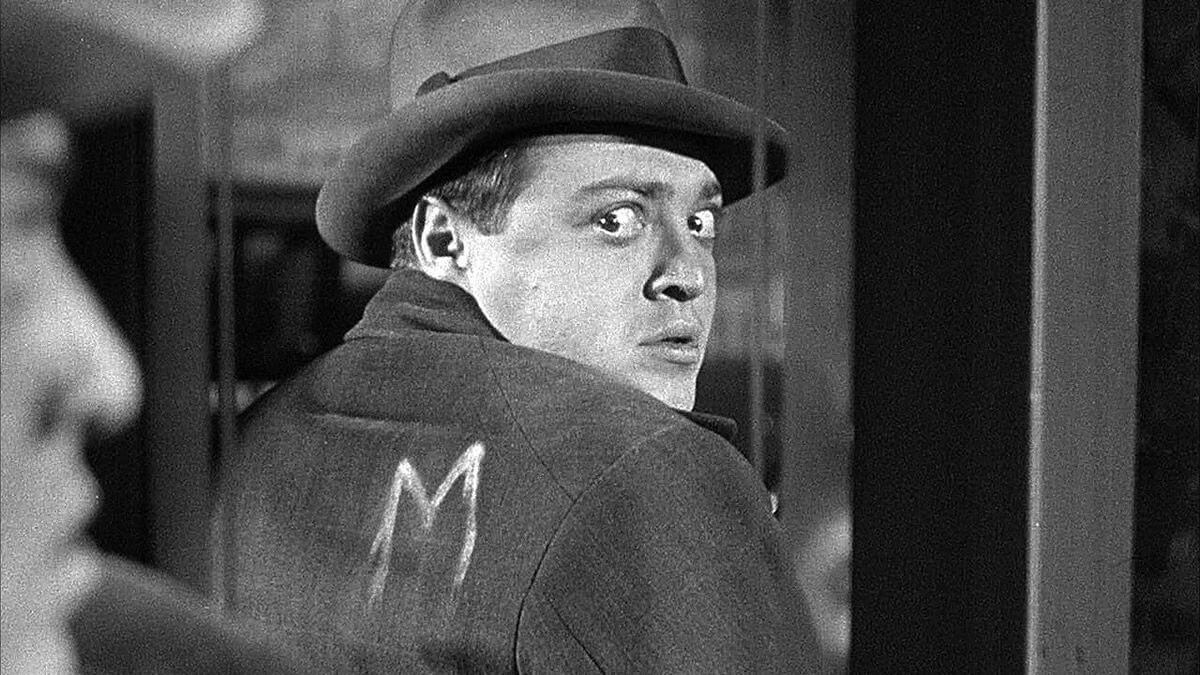
M is one of those classic films that will likely never age poorly. Why? Because Fritz Lang’s first sound production still astonishes, continues to captivate from the first minutes, still chills the blood, and touches on issues that, unfortunately, have been, are, and always will be close to human experience. M broke taboos at the time of its release and opened up entirely new possibilities for filmmakers. I am pleased to see Lang’s film in your ranking because, in my opinion, it is a masterpiece on every level (not just as a thriller). [Przemysław Mudlaff]
48. Vertigo (1958)

The literary material for this Hitchcock masterpiece was provided by the French duo Boileau-Narcejac, co-creators of the success of Henri-Georges Clouzot’s Diabolique (1955). In a surreal, dreamlike form, the director tells a story of battling oneself, confronting personal weaknesses, and facing paralyzing fear of heights. However, it is also largely a melodramatic tale of love. Hitchcock is in excellent form here with a plethora of brilliant narrative devices to enhance the story, and James Stewart delivers one of his finest acting performances. Despite this, the production did not receive acclaim upon its release year. Only years later was it recognized as one of the greatest achievements in cinema, and in 2012 it topped the Sight and Sound magazine’s list of all-time greatest films, dethroning critics’ favorite: Orson Welles’ Citizen Kane (1941). [Mariusz Czernic]
47. Phone Booth (2002)
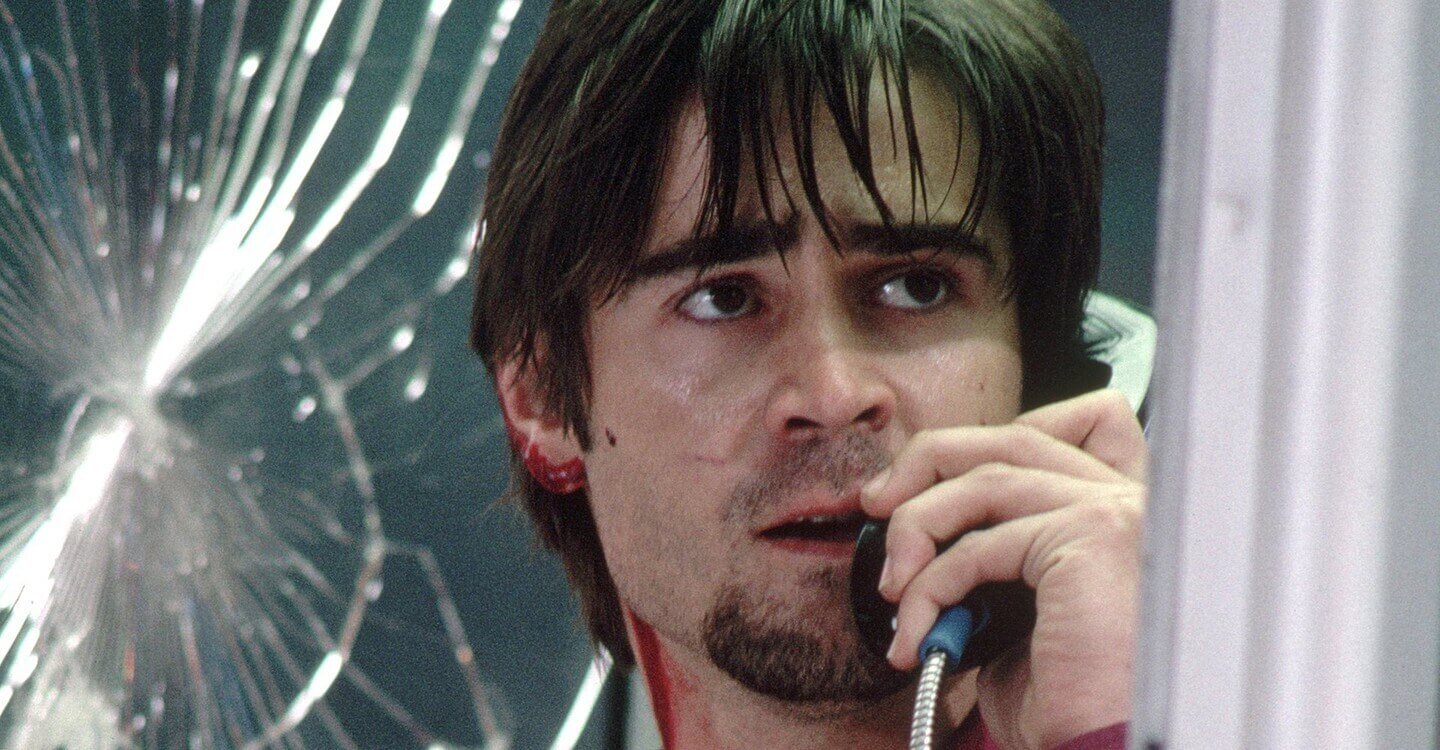
Movies predominantly set in a single location for most of their duration no longer surprise us today. However, Joel Schumacher’s Phone Booth continues to provide excellent, tension-filled entertainment. This is largely due to Colin Farrell’s outstanding performance, Kiefer Sutherland’s chilling voice, superb cinematography, the use of split-screen technique, and clever, dynamic editing. Sure, Phone Booth may have a few logical gaps, but does that really matter when watching it sends shivers down your spine and leaves you pondering questions about your own humanity afterward? [Przemysław Mudlaff]
46. The Pelican Brief (1993)
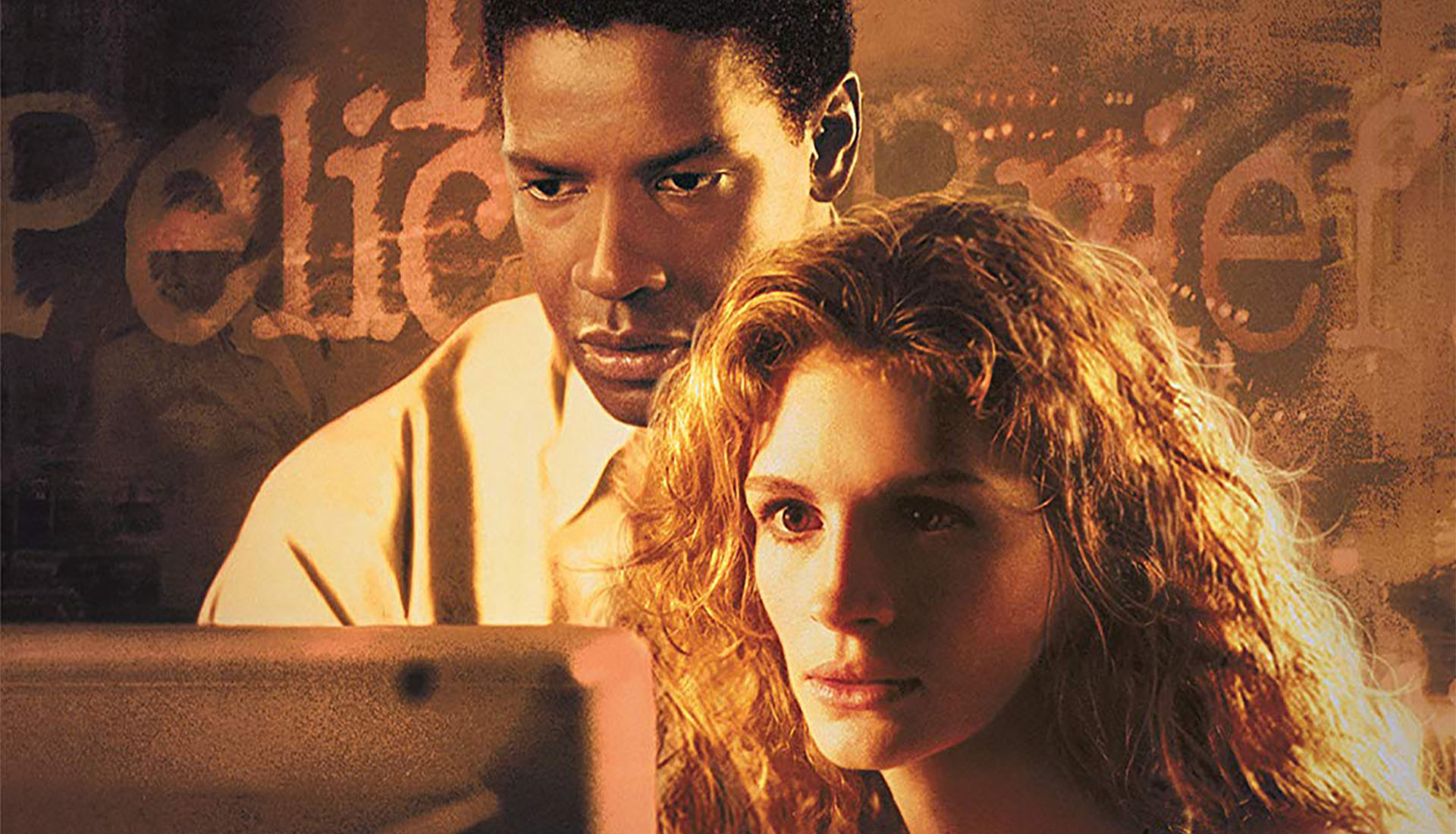
Perhaps The Pelican Brief isn’t the pinnacle of Alan Pakula’s career, but it remains a prime example of an excellent adaptation of its literary source. Pakula managed to capture both the spirit of Grisham’s novel and enhance it to appeal to the cinematic audience. As a result, for the past 30 years, we’ve been entertained by this honest, dynamic, and suspenseful production, featuring strong performances by Julia Roberts and Denzel Washington. [Przemysław Mudlaff]
45. Marathon Man (1976)
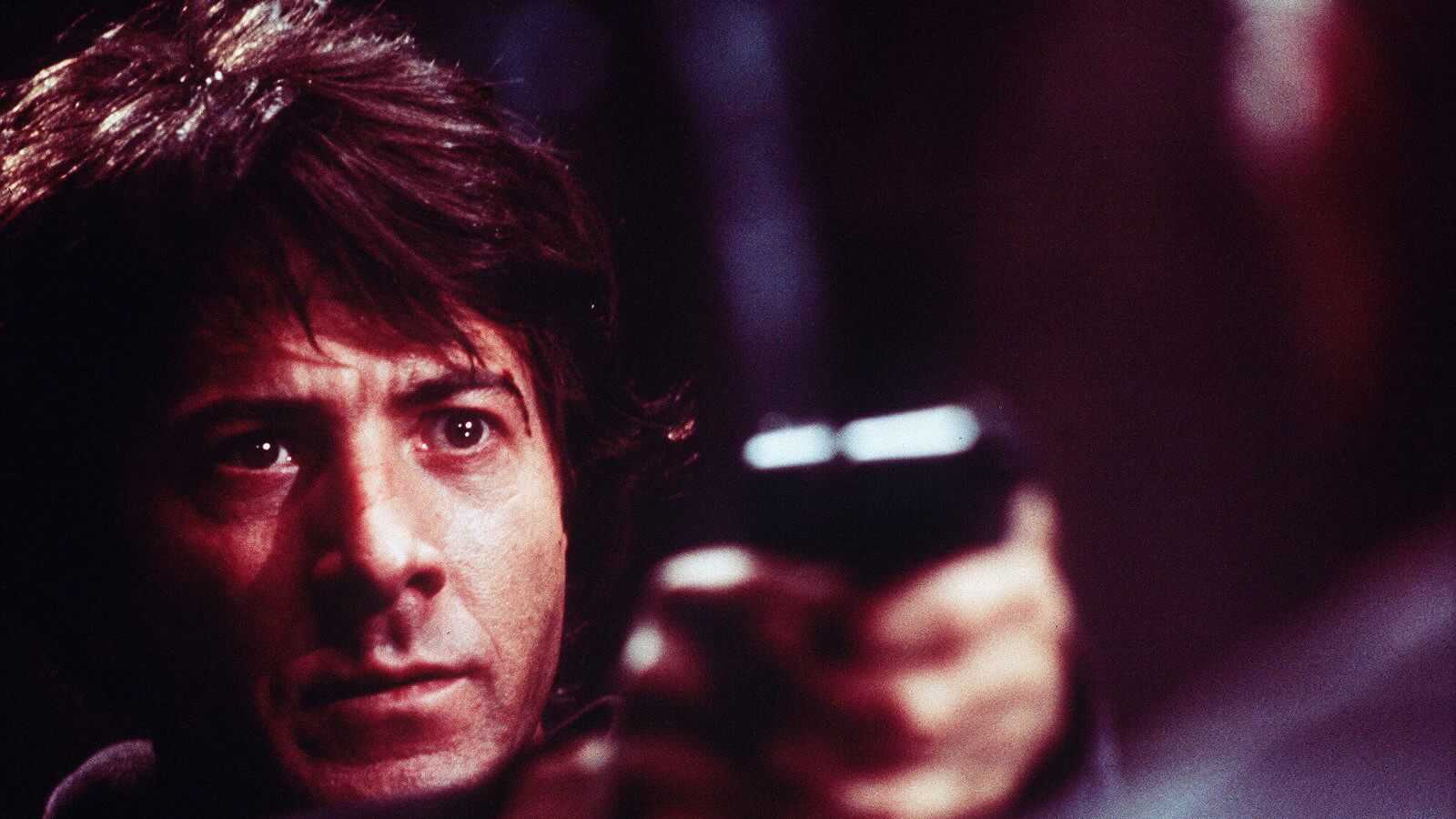
Marathon Man is a remarkable film about finding the inner strength and determination to navigate life’s twists and obstacles, striving for personal achievement not for medals, but for oneself. This powerful cinema encompasses many entertaining aspects, making it easily accessible to modern audiences raised on different cinema but who understand the principles of cinematic entertainment. The production grips viewers from the first scene, where two elderly men in cars engage in a road rage incident. To an outsider, they may appear as two idiots whose behavior might provoke laughter, but the context of the situation is far from humorous—their worldview shaped by Nazi ideology and its anti-Semitic prejudices. As the narrative evolves, new themes and materials for analysis emerge, yet the consistency in building tension and atmosphere remains unchanged. With each passing minute, emotions escalate toward the pinnacle achievable by a true thriller. [Mariusz Czernic, excerpt from a review]
44. I Am a Killer (2016)
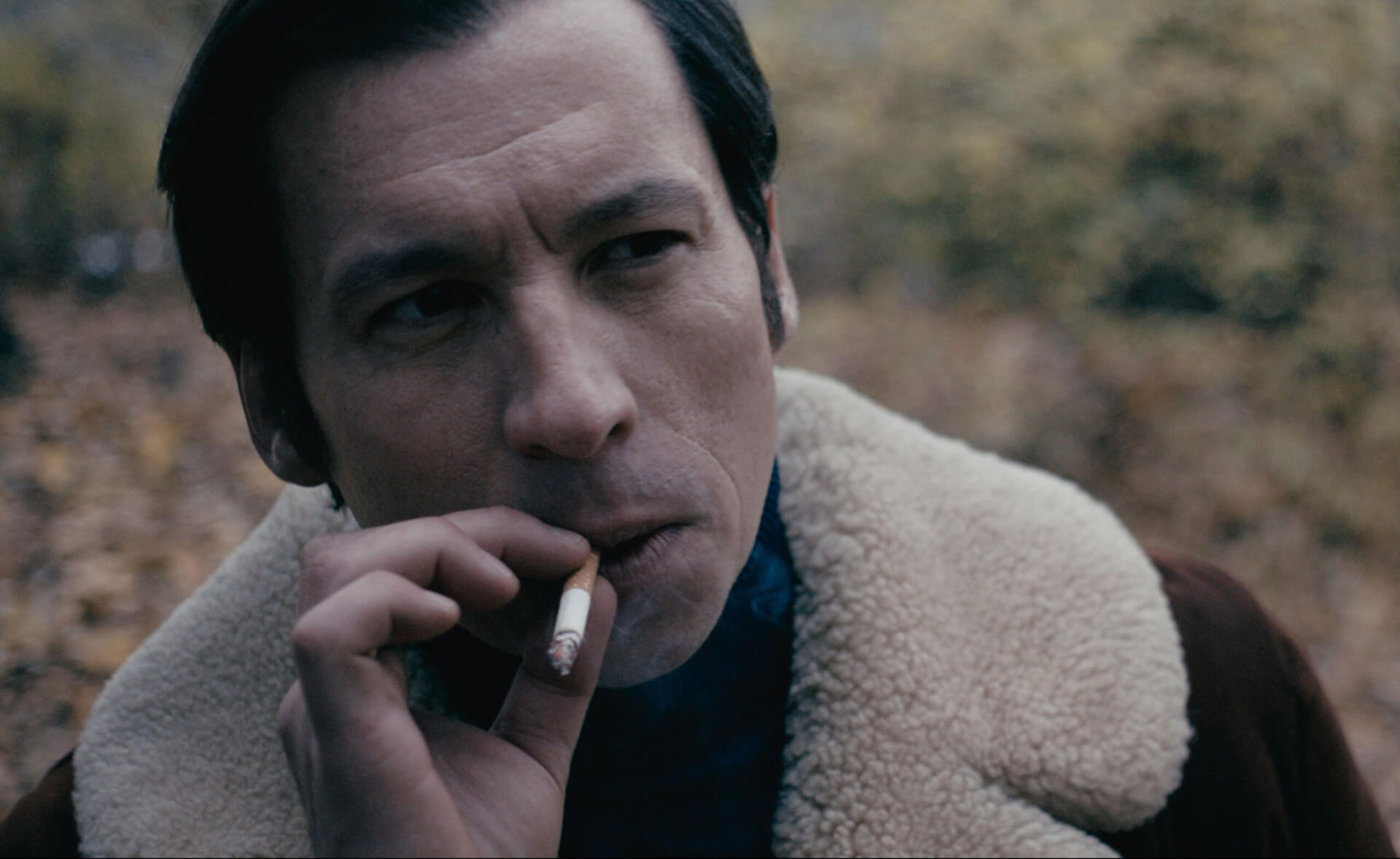
While Pieprzyca in I Am a Killer delves into the famous criminal case of the Vampire of Zaglebie, his film does not primarily focus on the law enforcement pursuit of the criminal. Pieprzyca, being too intelligent a creator, avoids falling into clichés. The character of Marchwicki serves merely as a pretext for him to create a story about the evil lurking within each of us—about its nature and banality. Therefore, I Am a Killer stands as a psychological thriller of the highest caliber. [Przemysław Mudlaff]
43. Nightcrawler (2014)
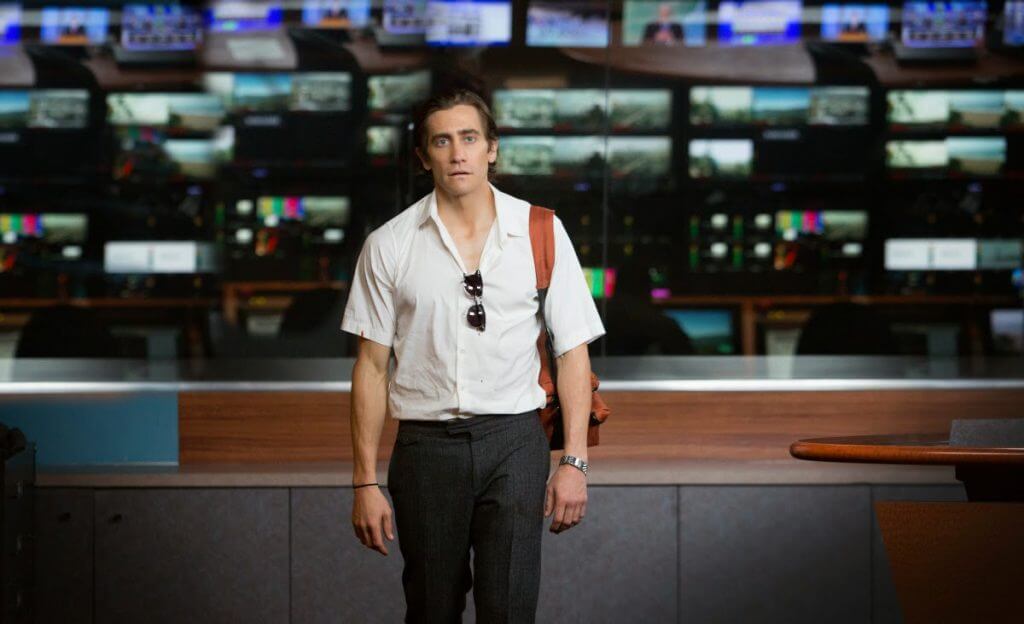
Nightcrawler is one of those films where Jake Gyllenhaal steals the entire show. The exception here, however, is that the character of Lou Bloom, portrayed by the popular actor, is not likable. He is a terrifying embodiment of capitalism. Lou, solely focused on profit, becomes a ruthless individual devoid of empathy. Nightcrawler is a chilling psychological thriller that speaks volumes about both the media and ourselves. [Przemysław Mudlaff]
42. Duel (1971)
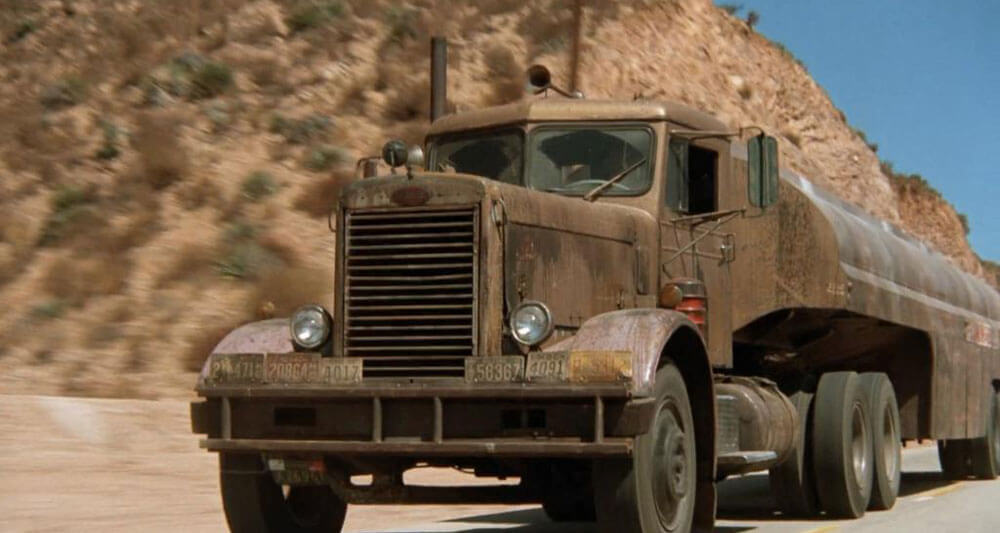
Duel is the most famous film of ABC’s Movie of the Week and essentially Steven Spielberg’s first outstanding achievement. There are two versions: the television version (90 minutes with commercials = 75 minutes of film) and the theatrical version (90 minutes without commercials). Richard Matheson adapted the screenplay from his own story, with a budget typical for the ABC Movie of the Week series (1969–1975), which was $450,000. Duel is an exhilarating road thriller about a David versus Goliath-style duel, yet it is also a powerful horror film about a man’s battle against a relentless adversary—more terrifying when it becomes clear the pursuer needs no motivation to become someone’s nightmare. Spielberg was essentially a debutant here but crafted a masterful work in terms of atmosphere, tension-filled sequences, use of sound effects, and filming action scenes in outdoor settings. [Mariusz Czernic]
41. The Wages of Fear (1953)
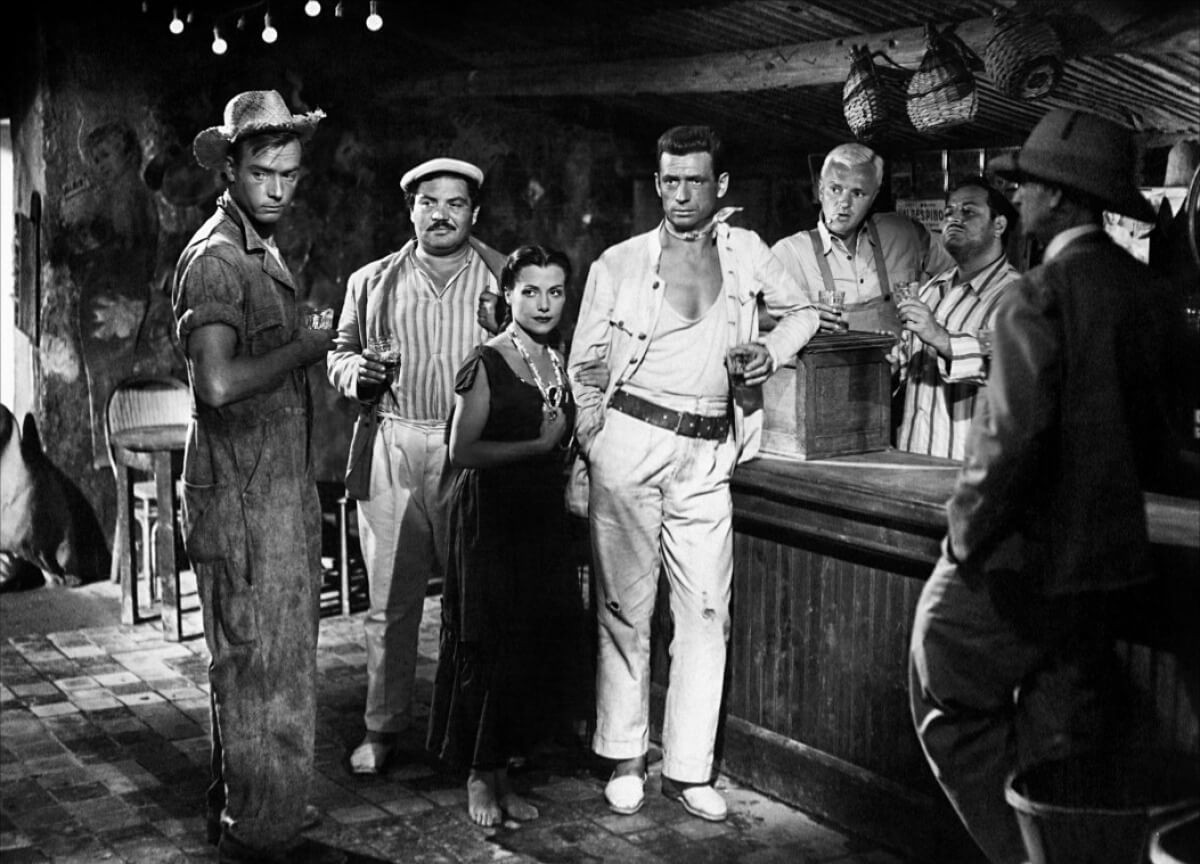
Henri-Georges Clouzot, the French master of suspense often compared to Alfred Hitchcock, crafted a series of successful crime dramas and thrillers. While these genres often overlap, here we have a thriller that lacks crime elements. Adapting Georges Arnaud’s novel, the French filmmaker created a gripping drama of desperation, bravado, and paralyzing fear. The film depicts a situation symbolizing the fragility of human life. The transportation of nitroglycerin by the characters serves a symbolic role—just a small mistake, a hole in the road, or even the blazing sun can turn a person to dust. The genre is enriched with a social commentary on the plight of refugees in South America (the exact location is unspecified, likely Venezuela). The work garnered major awards at Cannes and Berlin film festivals. Its success led to several adaptations, including Howard W. Koch’s Violent Road (1958) and Czesław Petelski’s The Depot of the Dead (1958), while William Friedkin’s Sorcerer (1977) provided perhaps the most notable remake, though it premiered after Clouzot’s death. [Mariusz Czernic]
40. The Ghost Writer (2010)
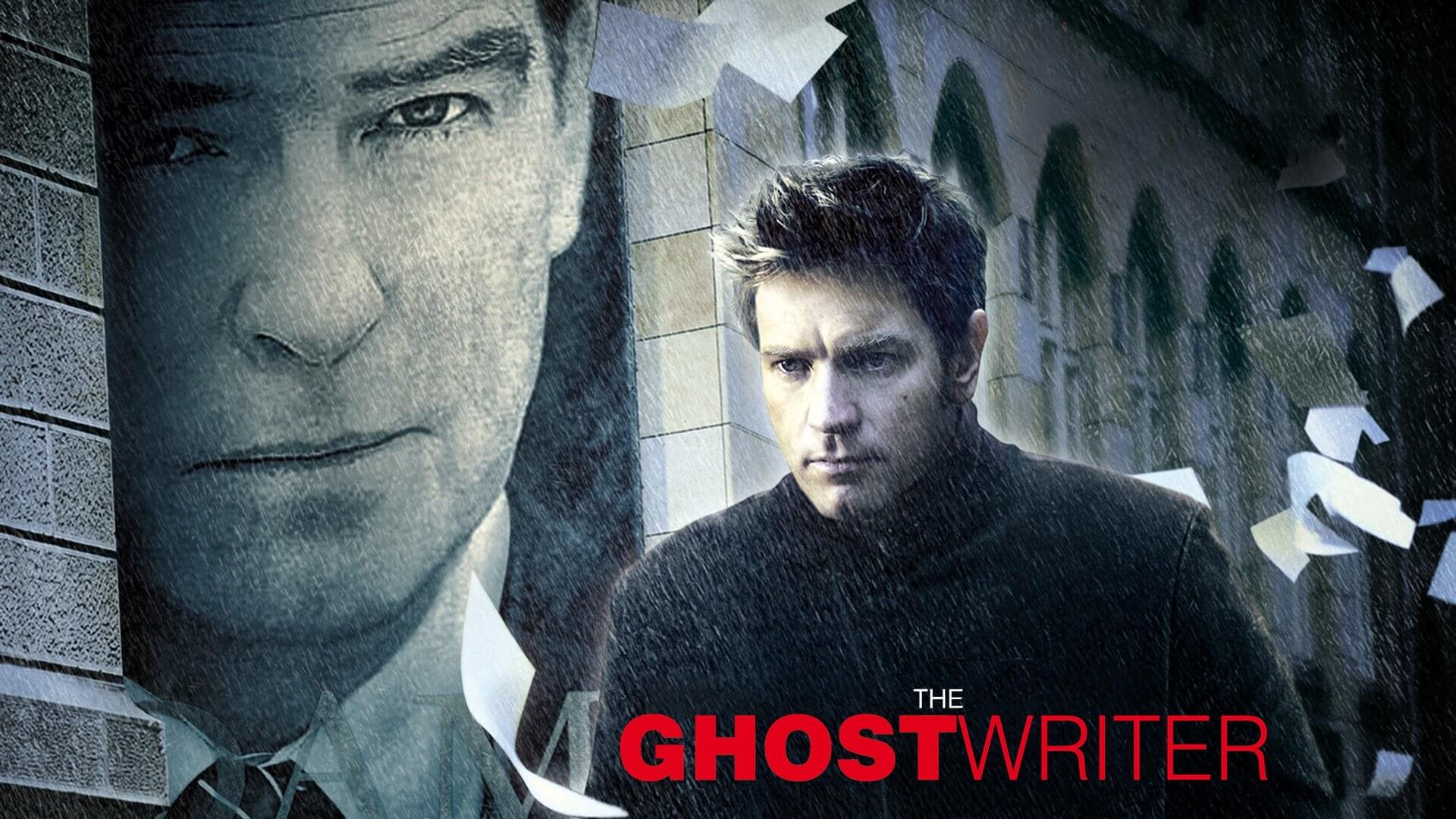
Despite fairly high critical ratings and generally good reception from the audience, I feel somewhat isolated in claiming that Roman Polanski’s thriller is his best film since Tess. Yes, in my opinion, it’s even better than The Pianist! The perfect blend of Robert Harris’s writing talent with Polanski’s directorial skill resulted in an outstanding achievement comparable to the director’s best works. The film is shot in a very classical manner, one might even say in a way that films are not made today—a characteristic it shares with paranoid thrillers of the 1970s. Moreover, this isn’t the only commonality with that genre—Polanski’s characteristic use of closed spaces and psychological interplay among a narrow group of characters, combined with politics and mystery, creates a thrilling effect that is truly remarkable. [Edward Kelley]
39. The Batman (2022)
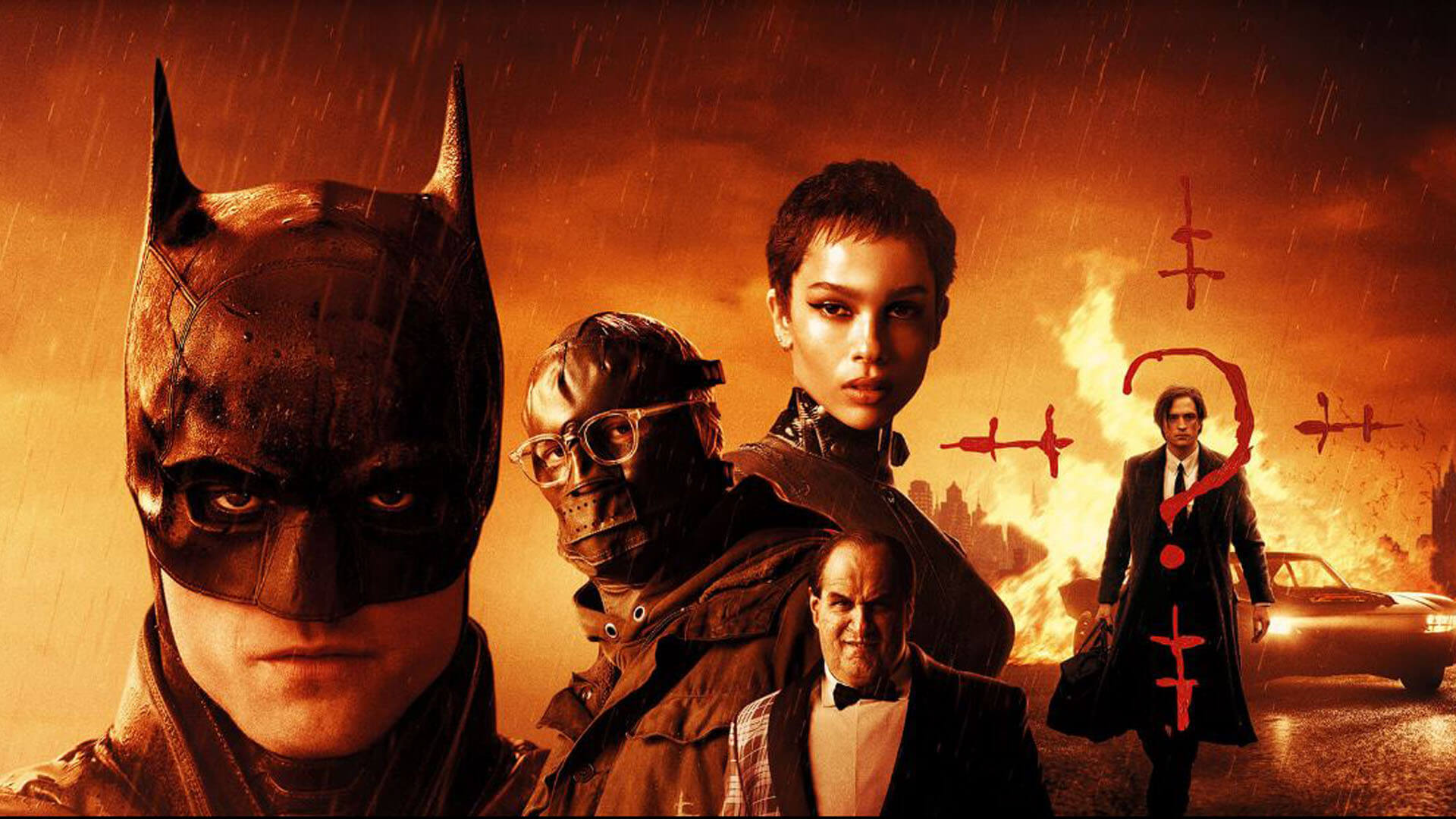
Matt Reeves’ The Batman is not only the best adaptation of the comic book character since Tim Burton’s films, but also one of the greatest superhero films in history and an excellent thriller, crime drama. The gritty, rain-soaked blend of Polanski and Fincher creates an extraordinary emotional tale of darkness and hope. [Filip Pęziński]
38. Fatal Attraction (1987)
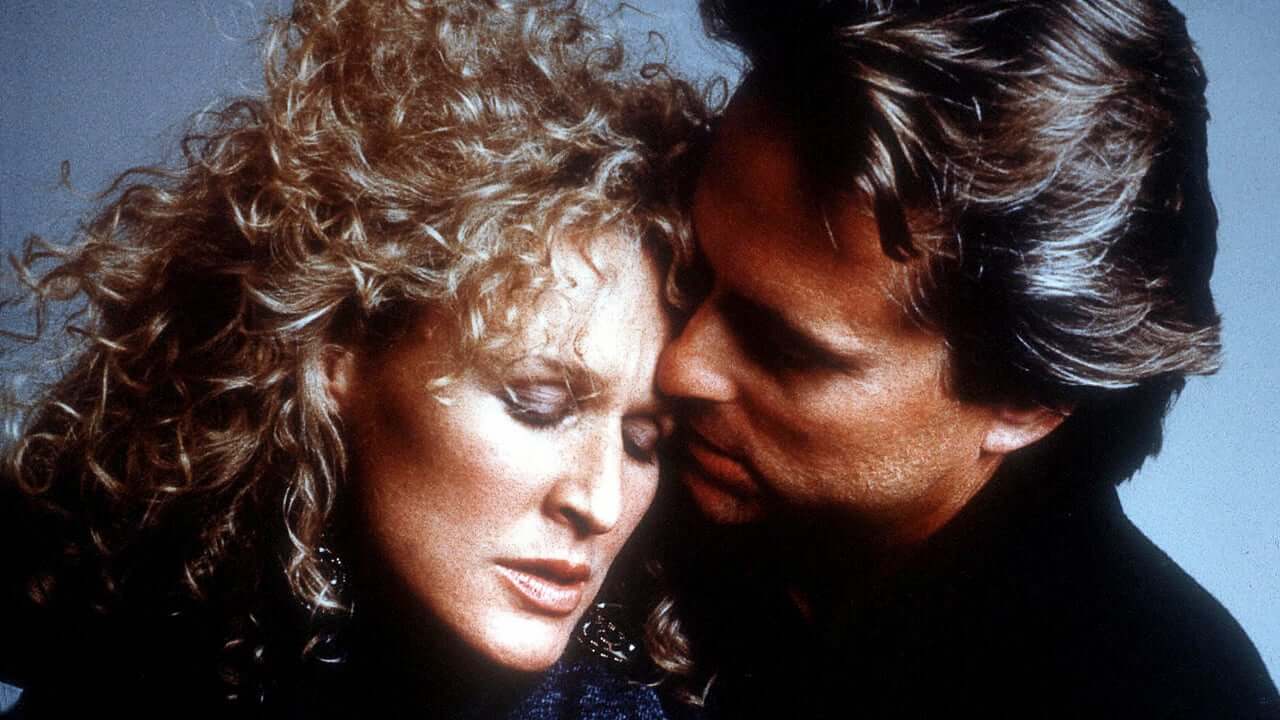
A stylish, sensual, and erotic dark thriller that is impossible to ignore. Dan Gallagher, portrayed brilliantly by Michael Douglas, is a man who seemingly has it all—a beautiful and loving wife, a sweet daughter, and even a dog. On top of that, he’s a successful New York lawyer. But everything changes when he meets the demonic Alex, whose wild curls conceal the face of a seductive monster, a true 20th-century vampiress. In Glenn Close’s portrayal of Alex, one can easily spot signs of borderline personality disorder. Bored with his domestic bliss, Dan spends a few passionate moments with Alex on the kitchen counter and in an elevator, disregarding “marital fidelity and honesty,” a choice that comes at a high price. Far from being just a mildly unstable and melodramatic woman, Alex is a hell-bent psychopath who will stop at nothing to get what she wants. [Patrycja Foszcz]
37. Insomnia (2002)
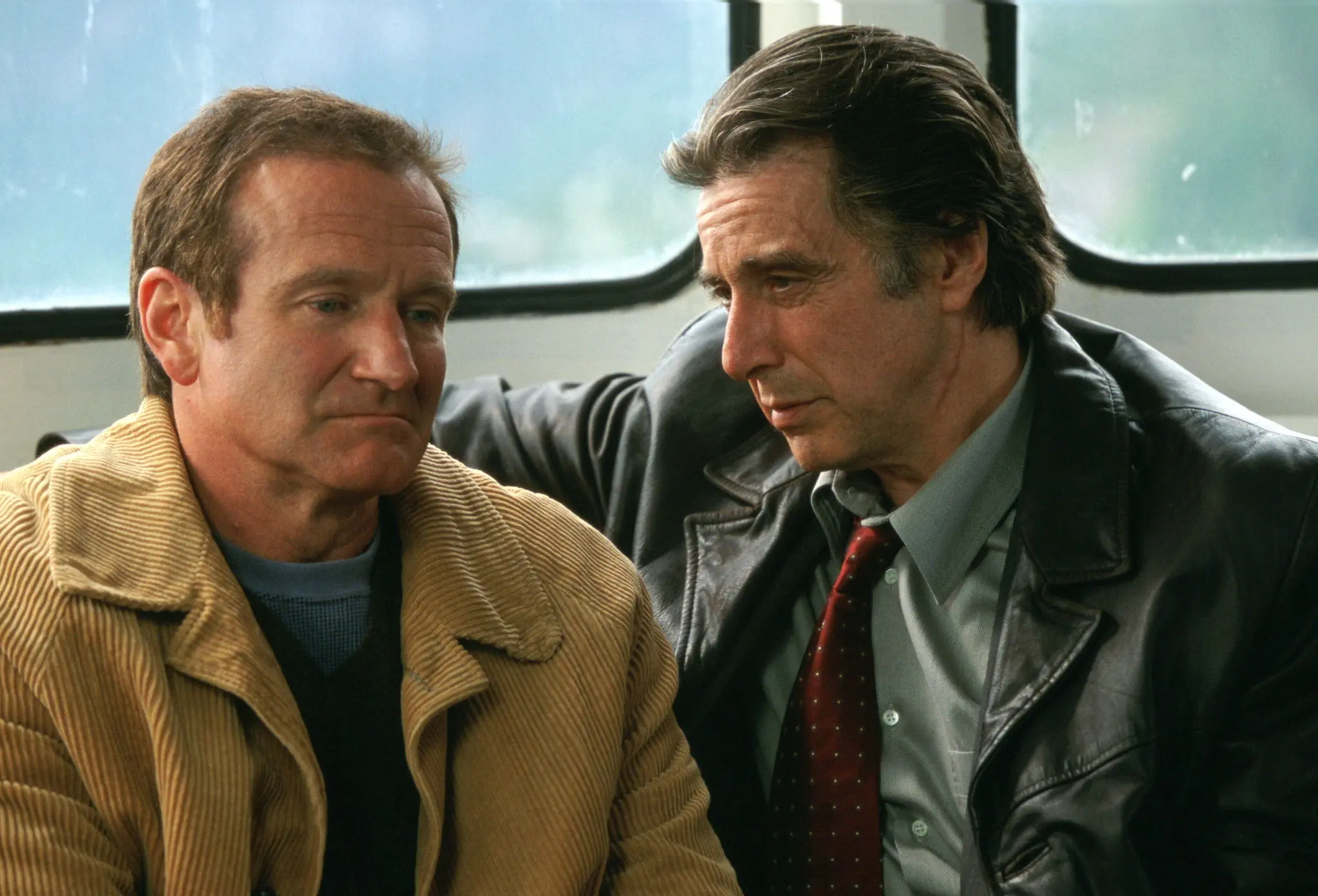
Insomnia, as a remake, might be the least “Nolan-esque” film by Christopher Nolan, but it’s hard to see that as a drawback, as it lacks the major flaws often found in the British director’s work. What remains on screen is his exceptional skill in building tension, crafting atmosphere, and drawing the viewer into a journey through the complexities of the human mind. One of my favorite roles by Al Pacino.[Filip Pęziński]
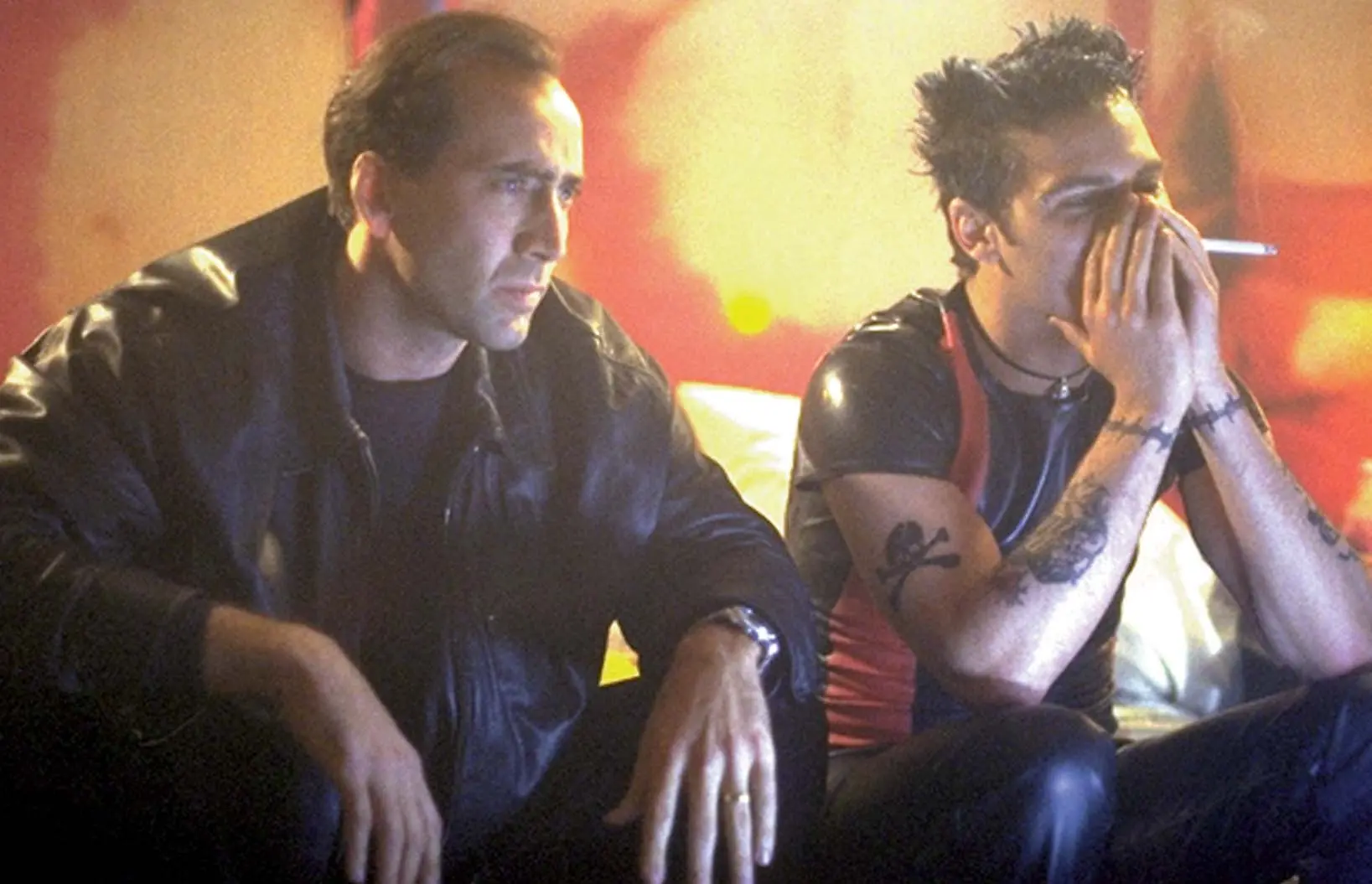
There are films one doesn’t want to revisit—films that depict evil not in an abstract sense but in a very tangible way. 8mm by Joel Schumacher is precisely one of those films, portraying perversions that go too far. It shows things we know exist but prefer not to remember or see. 8mm is a suffocating, bleak, and thought-provoking movie. And it’s proof that Nicolas Cage is a great actor, regardless of the directions his career has taken. [Agnieszka Stasiowska]
35. Guilty as Sin (1993)
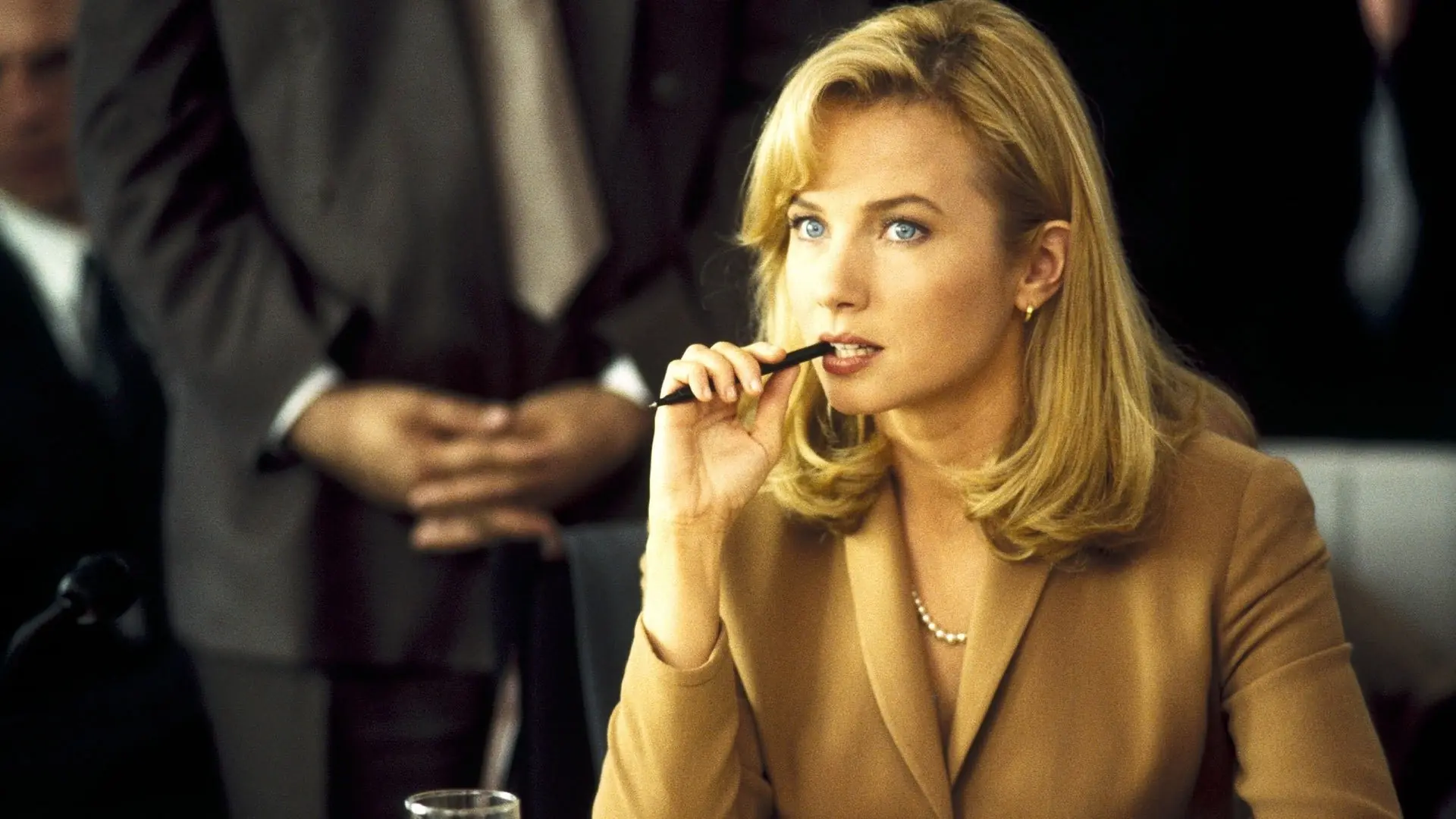
Successful attorney Jennifer Haines (played by the ethereal Rebecca De Mornay) takes on the defense of David Greenhill (Don Johnson), accused of murdering his wife. Her decision is undoubtedly influenced by the fact that her client is an incredibly attractive man. However, what she feels toward him soon takes a turn, as Jennifer becomes increasingly convinced of David’s guilt. By day, she stands loyally by her client; by night, she conducts her own investigation against him, risking her life. Sidney Lumet’s film is filled with classic shots that convey a sense of danger—a lone woman in an empty office building, heels falling several stories during a struggle. Today, both these shots and the performances by De Mornay and Johnson may seem somewhat artificial and outdated, but the film itself remains a classic of the genre. [Agnieszka Stasiowska]
34. The Birds (1963)
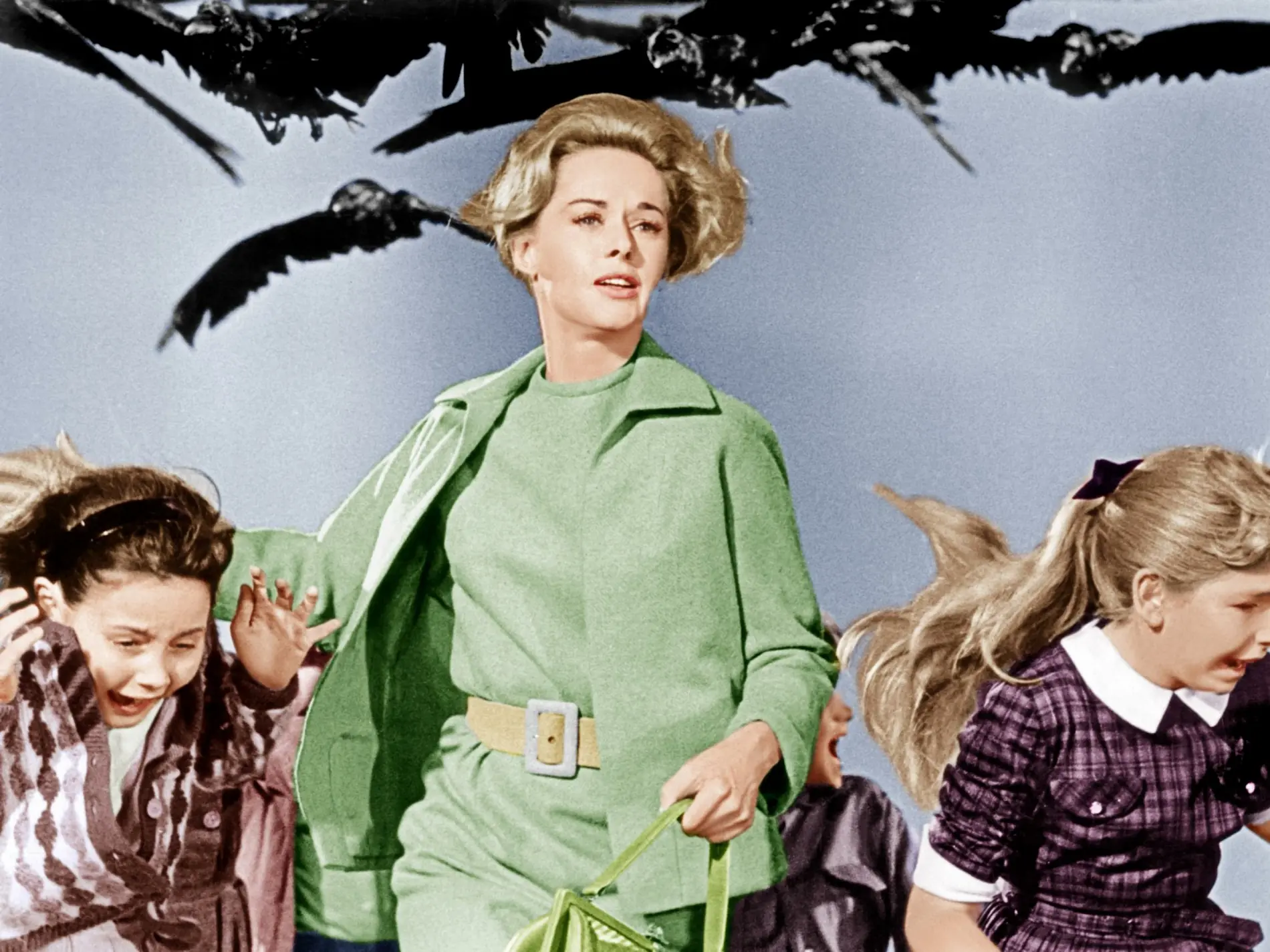
For birds, the sky is a roof, and their home is the entire world. Humans are thus intruders, and birds have a strong motivation to attack. Who could win in such a clash? Are the odds even? Is it even possible for Civilization to lose control over Nature? This film is quite unusual in Alfred Hitchcock’s career, as the threat comes not from humans but from animals. The story is based on Daphne du Maurier’s novella and Evan Hunter’s screenplay. Using innovative special effects and an experimental soundtrack (resembling bird sounds), the master of suspense created an apocalyptic horror filled with tension and dread that remains mesmerizing to this day. [Mariusz Czernic]
33. Contratiempo (2016)
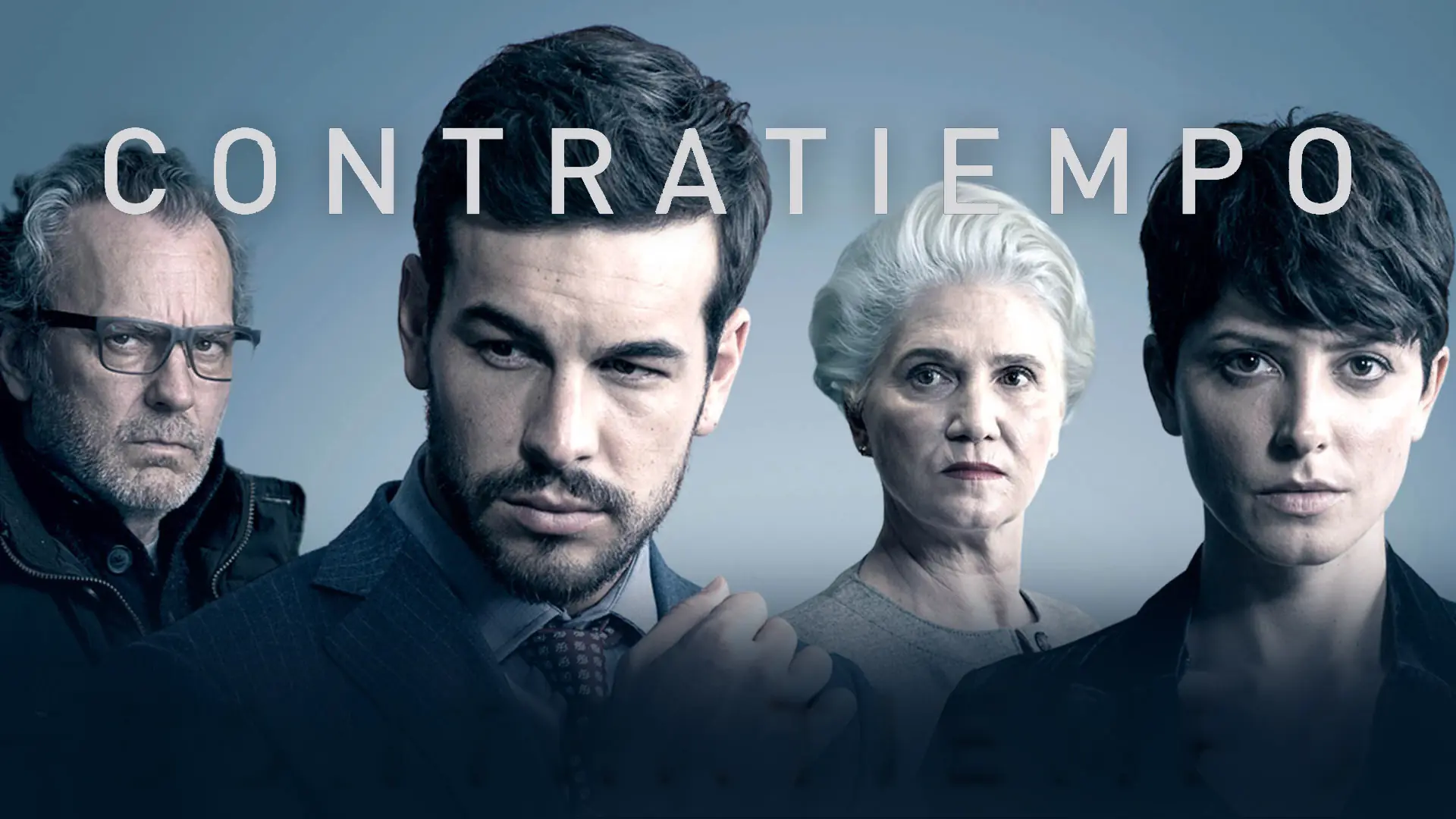
Contratiempo is a classic of the genre. A thriller, also known as a suspense film, relies on the gradual buildup of tension, which Oriol Paulo achieves through an outstanding screenplay and a slow-paced cinematography style with lingering shots. Contratiempo tells the story of a young man accused of murder, and while that may sound cliché, it is anything but. The plot unfolds at its own pace, trapping the viewer and drawing them deeper into an atmosphere of stifling uncertainty. The story’s finale may seem somewhat naive to some, but it in no way diminishes the film’s quality. [Agnieszka Stasiowska]
32. Blue Velvet (1986)
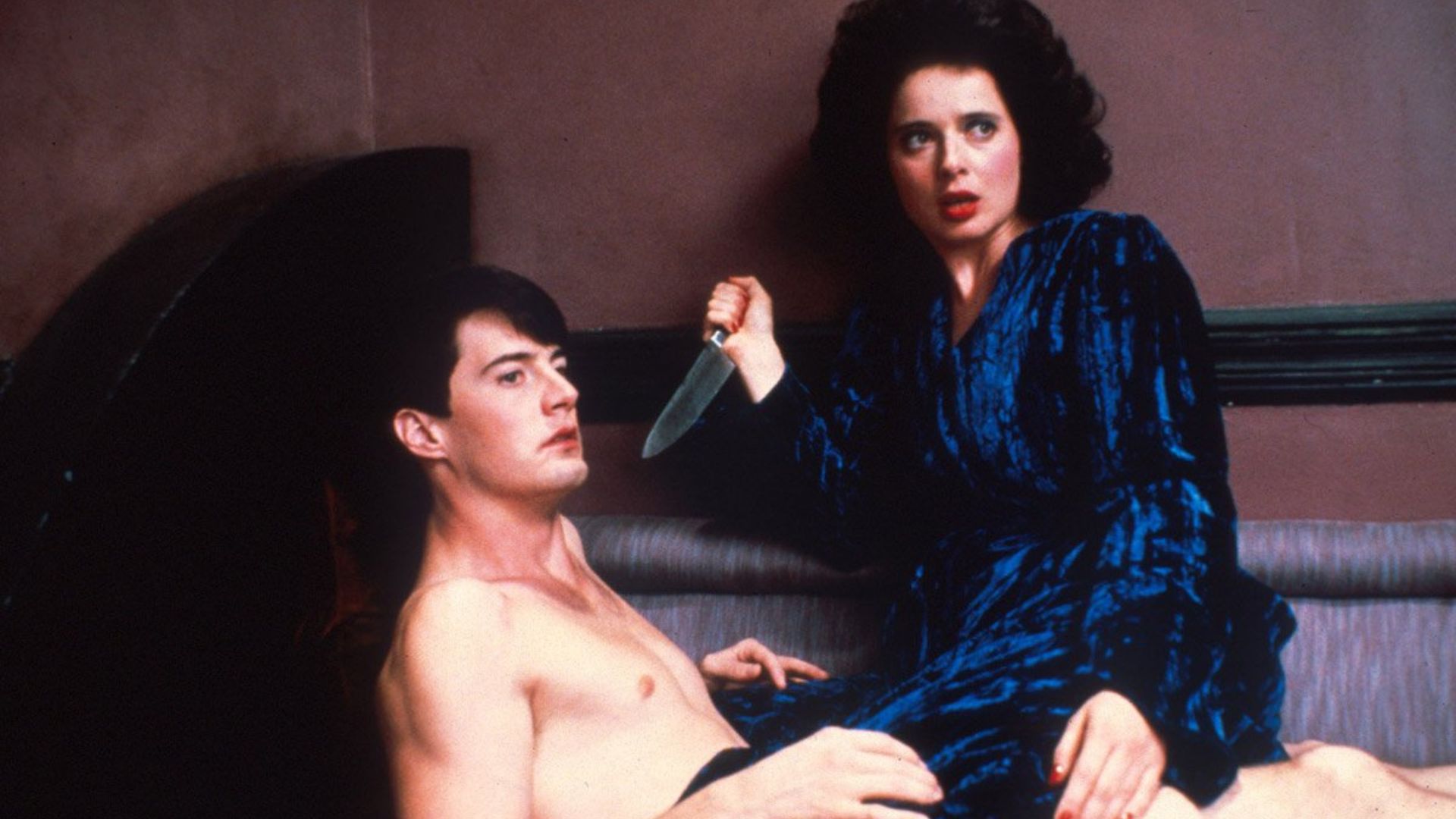
Blue Velvet remains, even today, David Lynch‘s best film, nearly all the fascinations of this unique director are on display. Blue Velvet is, on one hand, a captivating thriller about uncovering the dark side of an “ideal” American town, and on the other, a dark journey into the evil that resides within people. Kyle MacLachlan, Laura Dern, Isabella Rossellini, and Dennis Hopper form an unforgettable quartet that cinema will never forget. [Filip Pęziński]
31. Frantic (1988)
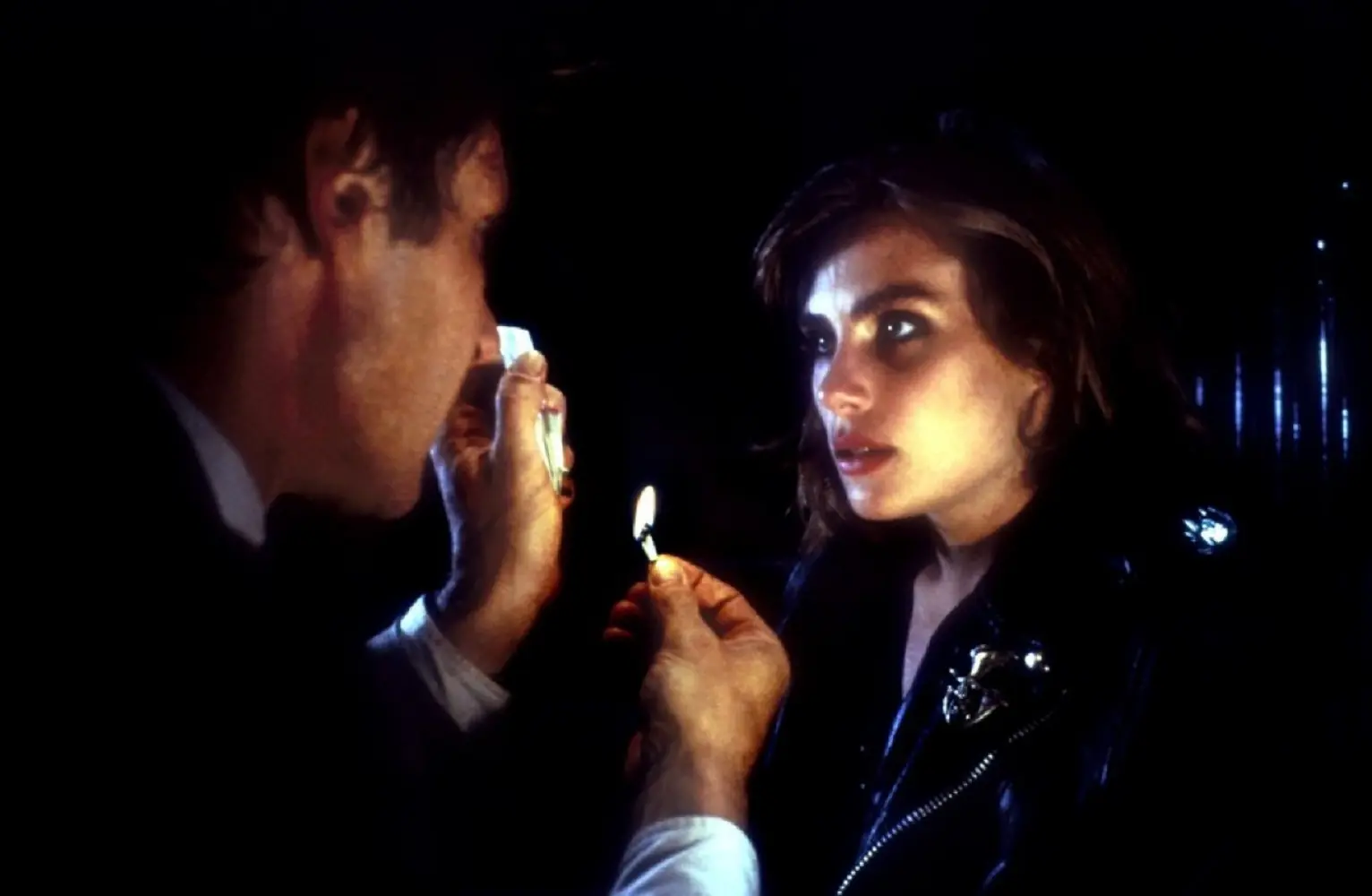
Frantic is undoubtedly one of Polański’s more intriguing works, with Harrison Ford, at the height of his fame and acting prowess, in the lead role. While it’s a solid thriller, its ranking above The Ghost Writer, released 22 years later, is somewhat surprising. This is one of those films in which Polański successfully engages with genre cinema, while straying from his typical stylistic hallmarks. Set in a vast metropolis, the stakes are high, with spies, an essential MacGuffin, and a high body count; yet, for me personally, it lacked Polański’s signature elements—emotional repression, confined spaces, that claustrophobic tension. Still, the film doesn’t suffer, as Polański manages to infuse even the smallest scenes with simmering suspense. I can hardly imagine any serious thriller enthusiast overlooking this title. [Edward Kelley]
30. Nocturnal Animals (2016)
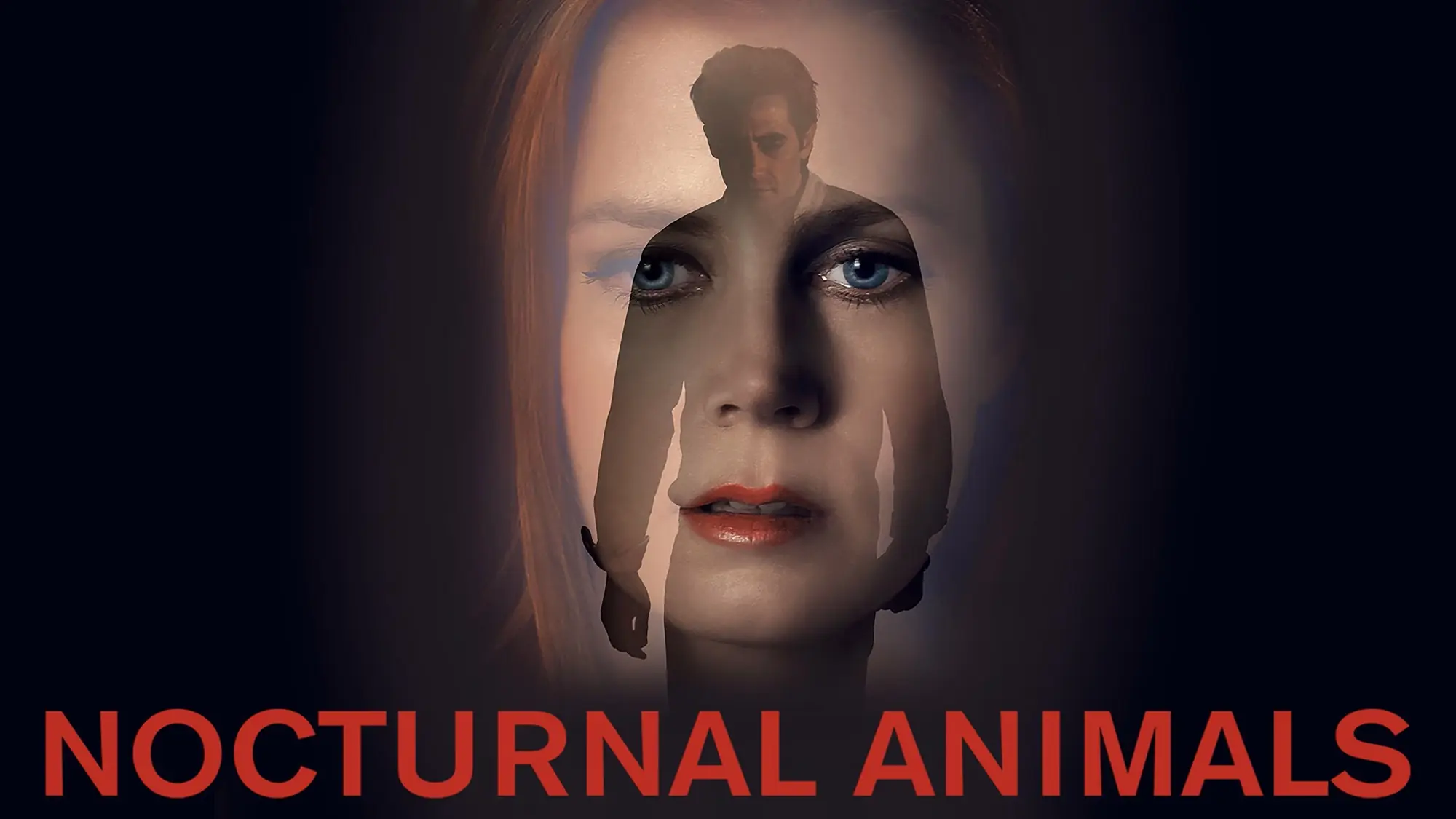
Tom Ford proves not only that he has an incredible sense of color, contrast, and composition, but also that he is a skilled screenwriter, capable of crafting captivating, multi-layered stories. His casting choices are impeccable—Adams and Gyllenhaal deliver outstanding performances, yet the supporting roles shine just as brightly with Aaron Taylor-Johnson and Michael Shannon. Even single-scene appearances by Andrea Riseborough, Michael Sheen, and especially Laura Linney seamlessly blend into the narrative, offering dialogues that provide key reflections on the unfolding events. The mesmerizing atmosphere of Nocturnal Animals is perfectly complemented by the exquisite music of Abel Korzeniowski, collaborating with Ford for the second time. [Dawid Myśliwiec]
29. L.A. Confidential (1997)
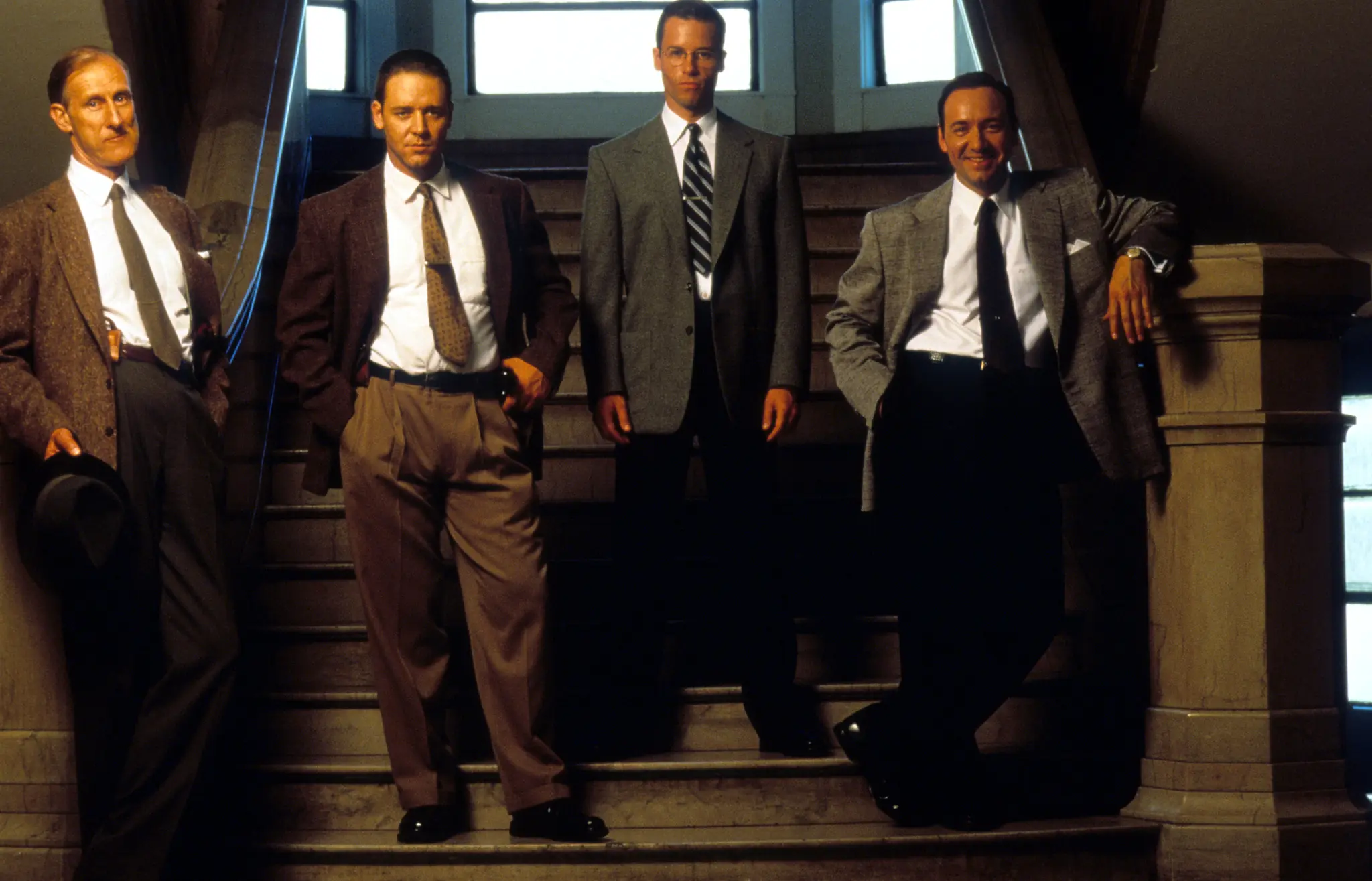
An adaptation of James Ellroy’s brilliant novel, directed by Curtis Hanson and featuring a stellar cast. Russell Crowe, Kevin Spacey, and Guy Pearce star as three police officers in the early 1950s, each trying—in his own way—to solve a murder case. The Los Angeles in Ellroy’s novel is far from the angelic face of Kim Basinger; it’s a grimy, nasty place rife with corruption and crime, where staying morally upright is a struggle. Some casually accept this impossibility, others find the compromise difficult, and a few fight back. For all of them, it’s about survival. Sunny California in a noir atmosphere—masterfully done. [Agnieszka Stasiowska]
28. Cape Fear (1991)
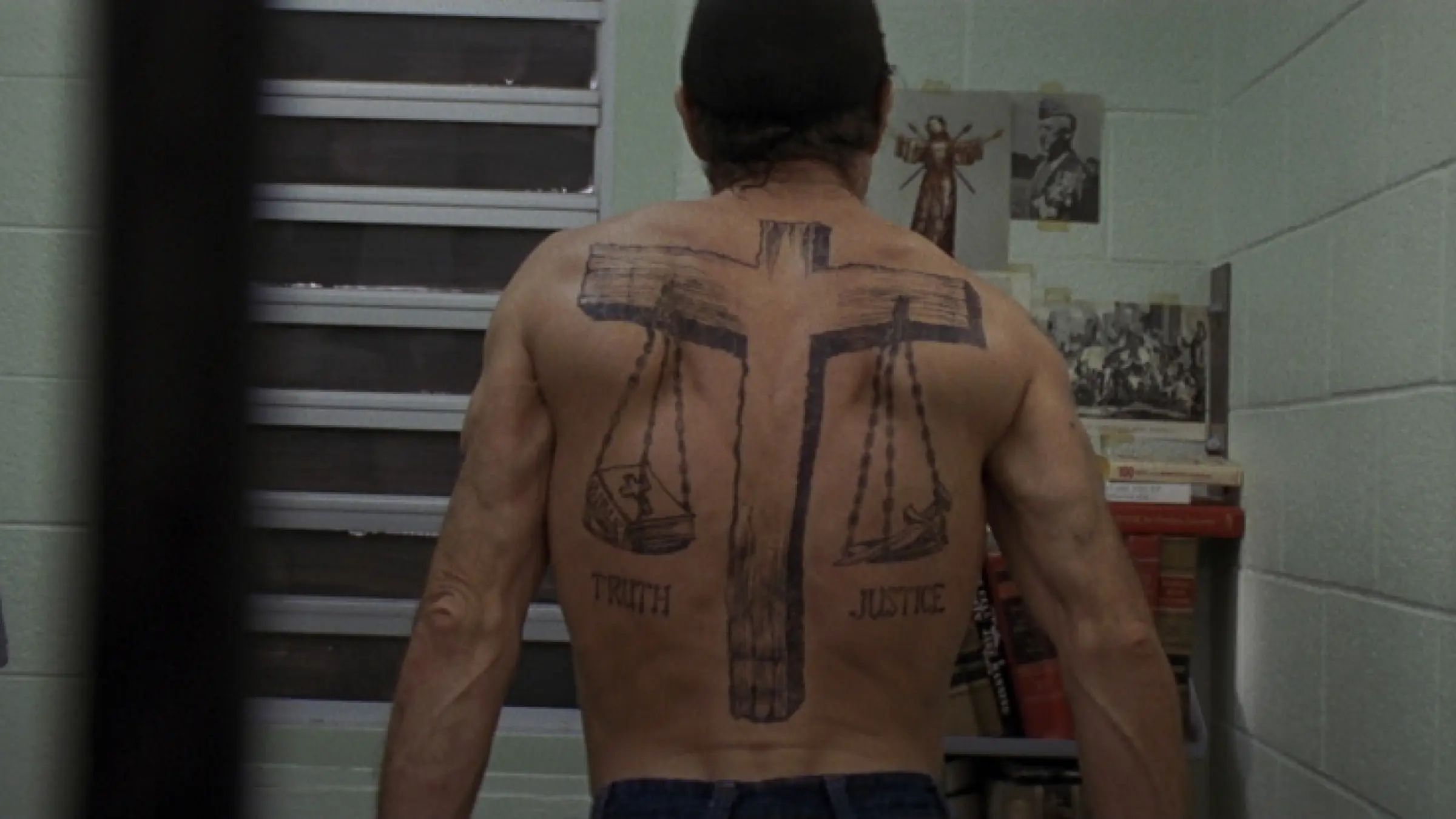
Cape Fear is unjustly underrated. It’s a classically structured thriller—a genre Martin Scorsese rarely tackles (he returned to it only with Shutter Island). Yet, within these boundaries, he moves with remarkable skill: he understands its principles perfectly, knows how to introduce characters, build conflict, and heighten tension. Scorsese consciously employs many tropes and conventions of the thriller genre, sometimes even directly referencing J. Lee Thompson’s original 1962 adaptation. However, Scorsese’s film strikes different chords, shifts dramatic emphasis, and uses characters and analogous events in unique ways—on each of these levels, it surpasses the original. [Maciej Niedźwiedzki]
27. Rear Window (1954)
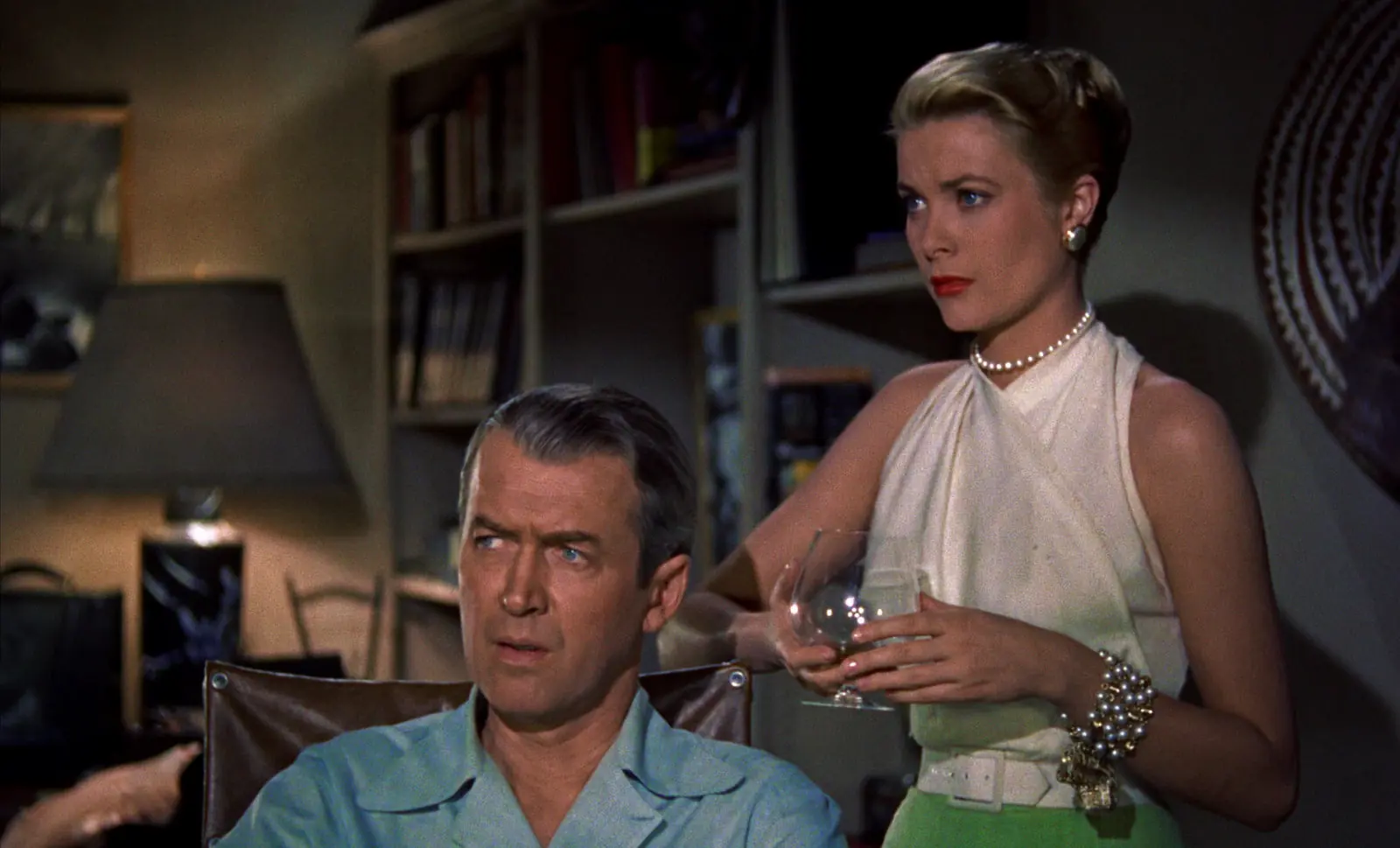
The scenario in Cornell Woolrich’s novella It Had to Be Murder inspired Hitchcock to create an intimate thriller. We witness the events from the perspective of a wheelchair-bound photographer, played by James Stewart, who falls into danger without leaving his home, merely by observing his neighbors’ behavior. The titular Rear Window serves as a metaphor for the cinema or television screen, where the viewer—much like the film’s protagonist—assumes the role of a voyeur. Few filmmakers can craft a suspenseful story while adhering to the theatrical unity of place, yet in 1954 Hitchcock completed two such films—the second being Dial M for Murder, both starring the future Princess of Monaco, Grace Kelly. [Mariusz Czernic]
26. Gone Girl (2014)
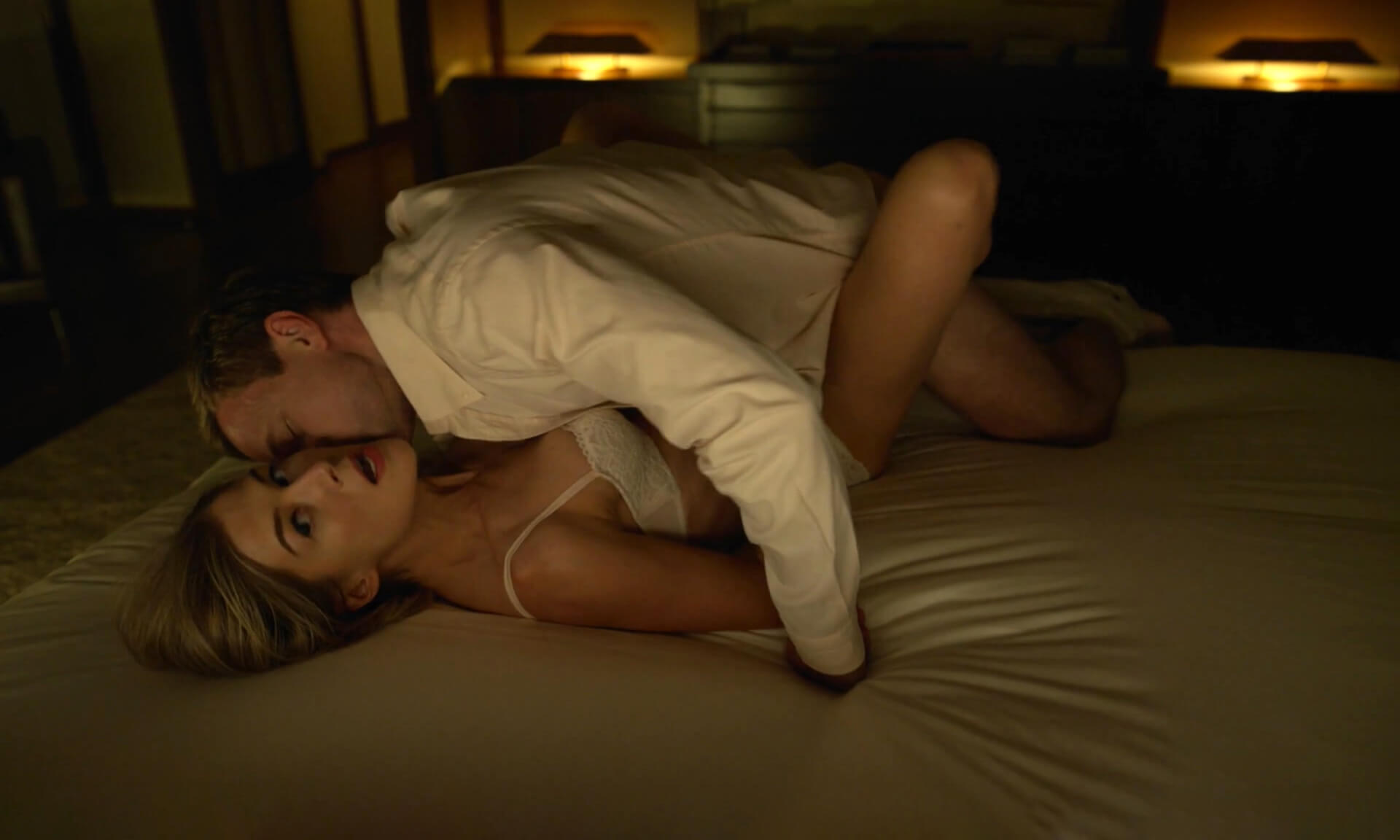
A noteworthy thriller directed by David Fincher, a filmmaker with several powerful titles under his belt. The strength of Gone Girl lies partly in its unpredictable screenplay and partly in the contrast between Rosamund Pike’s sweet appearance and the nature of her character. While this choice may seem obvious, we’re not accustomed to associating fragile blondes with violence. In Gone Girl, both Pike and her co-star Ben Affleck create complex characters, leaving the viewer lost and doubting their own judgments at some point. Bravo—that’s precisely the point of this kind of entertainment. [Agnieszka Stasiowska]
25. Funny Games (1997)
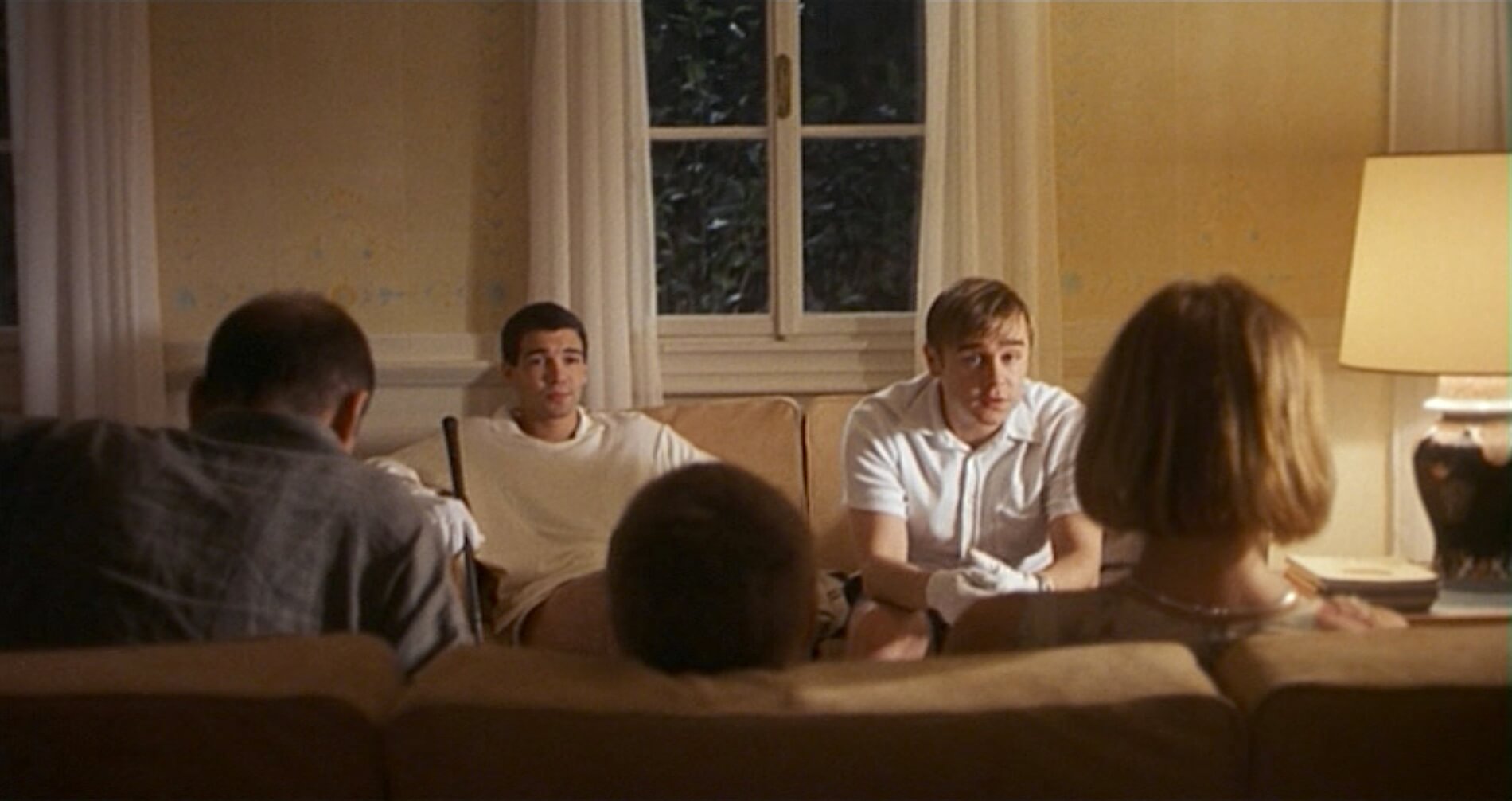
One of the most terrifying films I’ve ever seen didn’t frighten with demons preying on the living, sudden jump scares, or torrents of blood. Instead, Michael Haneke’s Funny Games showcased ordinary human, unrestrained cruelty, driven solely by the fact that it is possible. Funny Games tells the story of a family whose idyllic vacation is disrupted by two young men who use manipulation, threats, and violence to turn the couple and their child into toys in a cruel game. Haneke generates an incredibly intense atmosphere and weaves a sinister narrative by exploiting everyday, very banal situations that could happen to any of us. Funny Games shows that even something as simple as borrowing eggs can become the beginning of a deadly threat if we happen to encounter the wrong person. Add to this John Zorn’s piercing musical motif cutting through the sounds of a respectable symphony, and the fact that Haneke deliberately plays with the viewers’ expectations for violence and blood, and we have an exceptional film. [Tomasz Raczkowski]
24. Falling Down (1993)
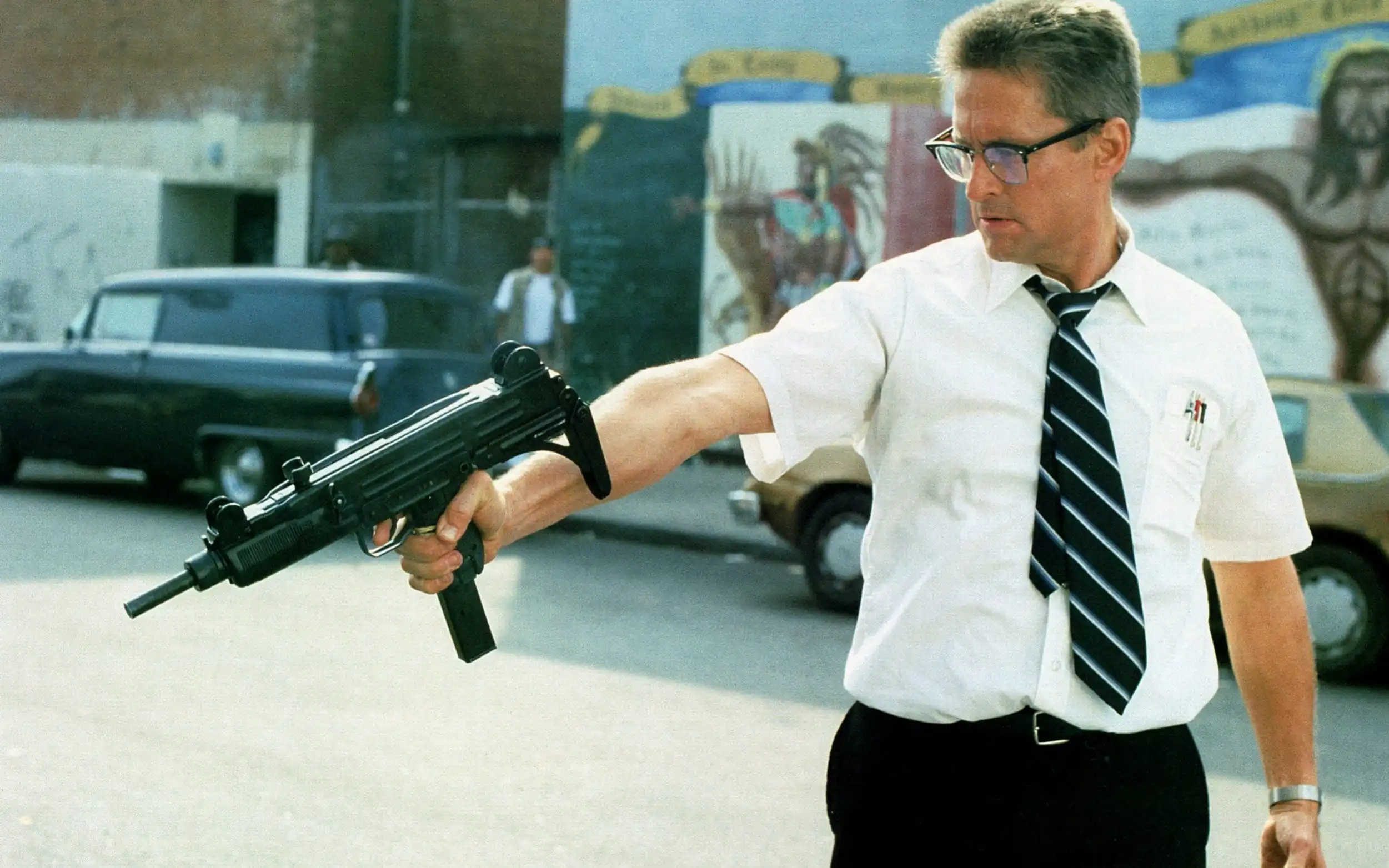
23. Basic Instinct (1992)
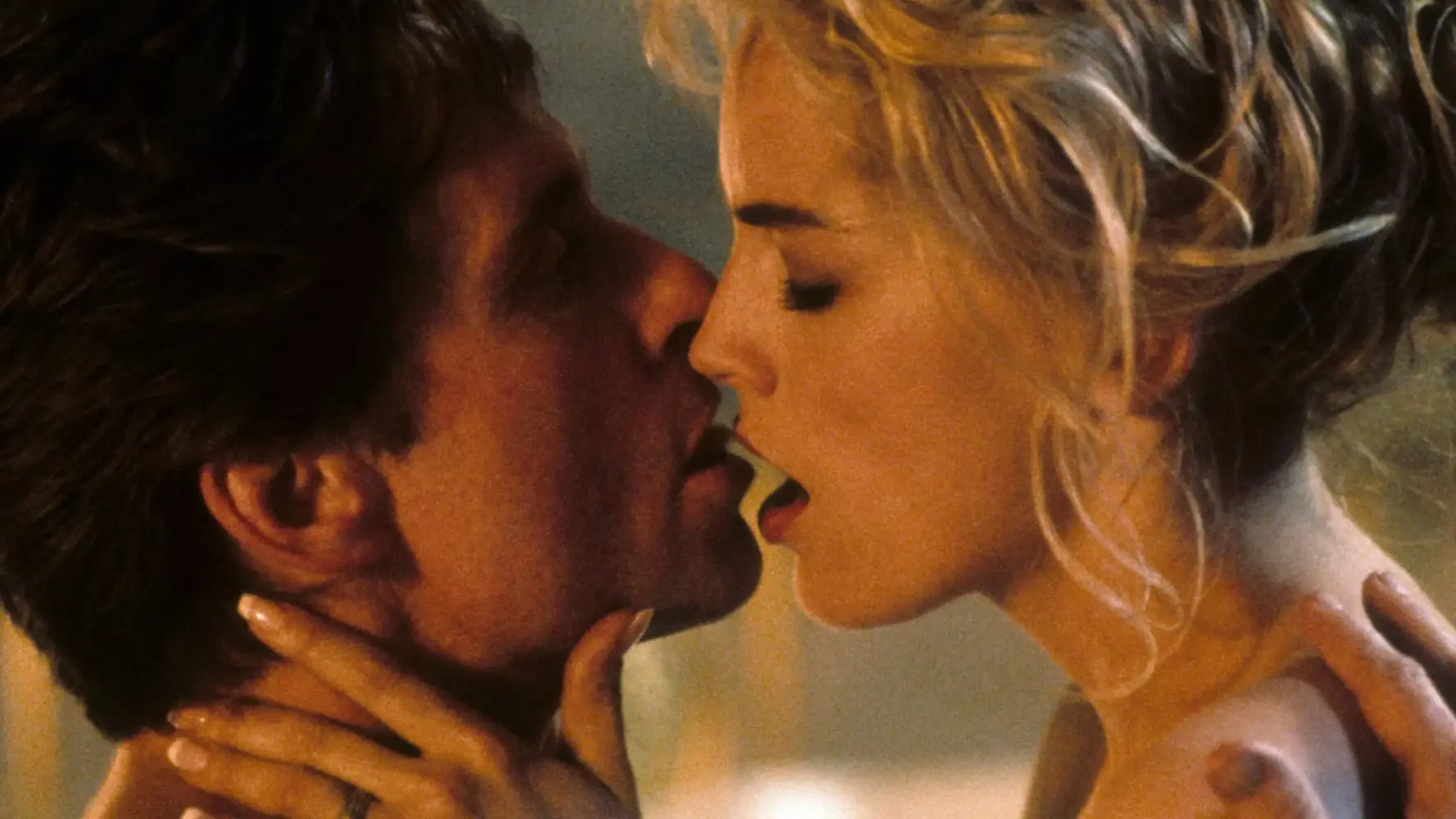
It was a sensation. The power of marketing worked wonders at the time, promoting Paul Verhoeven’s film as the erotic thriller of all time, filled with predatory passion, crime, and suspense, featuring sex scenes bolder than ever seen in mainstream entertainment. Basic Instinct introduced a new type of femme fatale; Sharon Stone as Catherine Tramell is a mantis in the body of a model, captivating viewers like a magnet, both hot and cold at the same time. The scene where she crosses her legs during the police interrogation broke records for fast-forwarding with VCR remotes. Not much has changed since then. Basic Instinct still holds the title of the number one thriller with a clearly erotic underpinning and theme, as the erotic tension between the main characters—especially during the revealing moments—dresses up this controversial 90s hit. [Krzysztof Dylak]
22. The Girl with the Dragon Tattoo (2011)
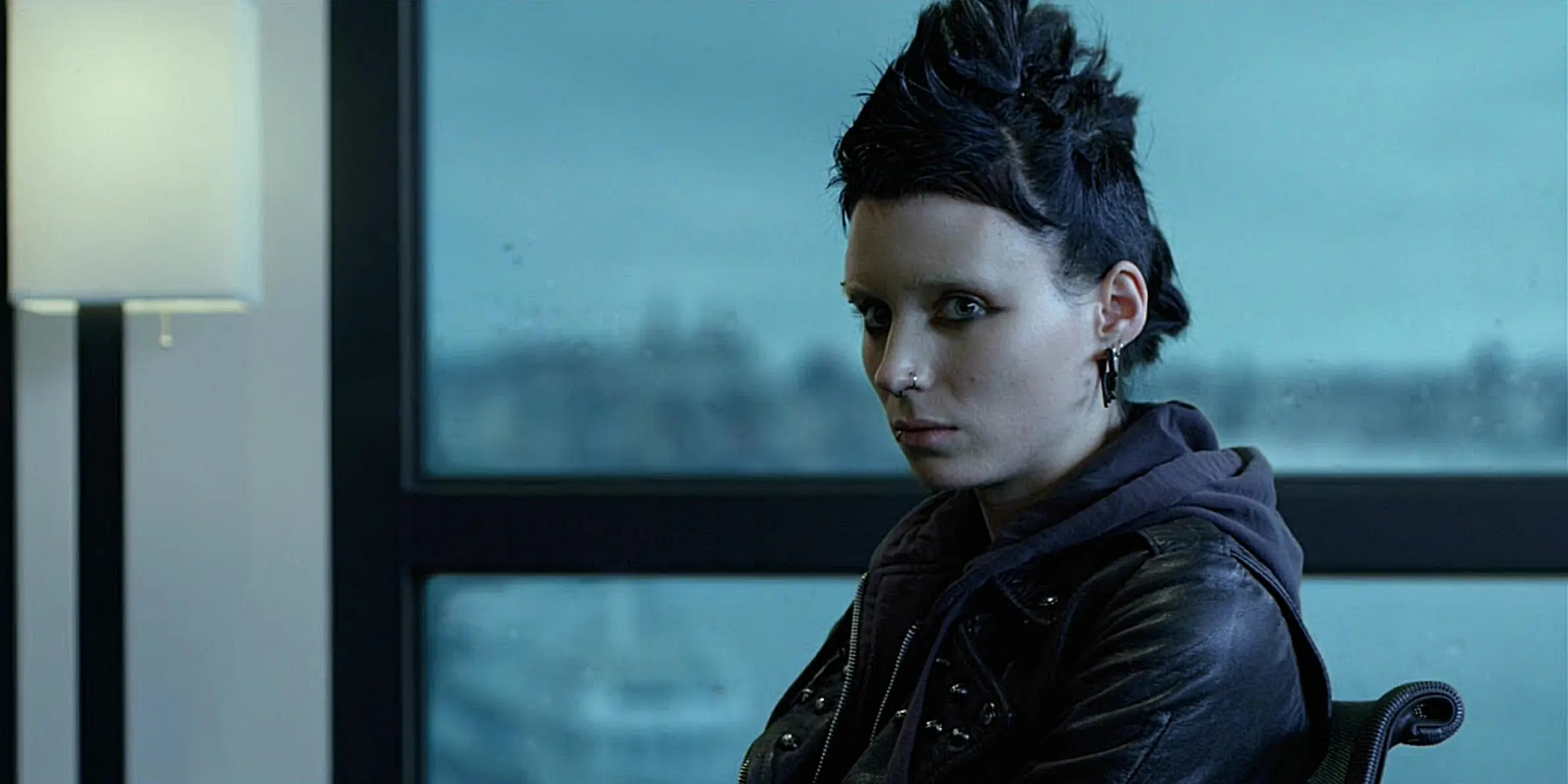
It was only a matter of time before the Millennium trilogy was brought to the screen again—this time by Americans. Fortunately, David Fincher, known for his unique style that perfectly suits the adventures of Lisbeth Salander, took the director’s chair. I was thrilled that the title role went to such a fantastic actress as Rooney Mara, alongside none other than Daniel “James Bond” Craig. I must admit that the film is a wild ride, filled with mystery, great acting, and an even more intriguing script. The viewer hardly gets a moment of respite while trying to unravel the puzzle alongside the characters and delving into the increasingly bizarre relationship that develops between them. This is undoubtedly a film worth watching that will stay with the viewer long after the credits roll. [Gracja Grzegorczyk]
21. Parasite (2019)

Parasite is a first-rate thriller. It consistently raises the heart rate, thickens the atmosphere, and sophisticatedly intensifies the sense of unease. It is a variation on the home invasion thriller. Joon-ho Bong explores the dark corners of a household, revealing embarrassing secrets and the disturbing past of the characters. Parasite is a story about enslavement and exploitation: both physical and mental. It undoubtedly shares something with Roman Polański’s apartment trilogy or Michael Haneke’s Hidden. In Bong’s film, the discomfort will primarily be felt by the viewers, as the victims remain unaware of their situation for a long time. Subtext, deception, and revenge are the leading themes of Bong’s film. [Maciej Niedźwiedzki]
20. Reservoir Dogs (1992)
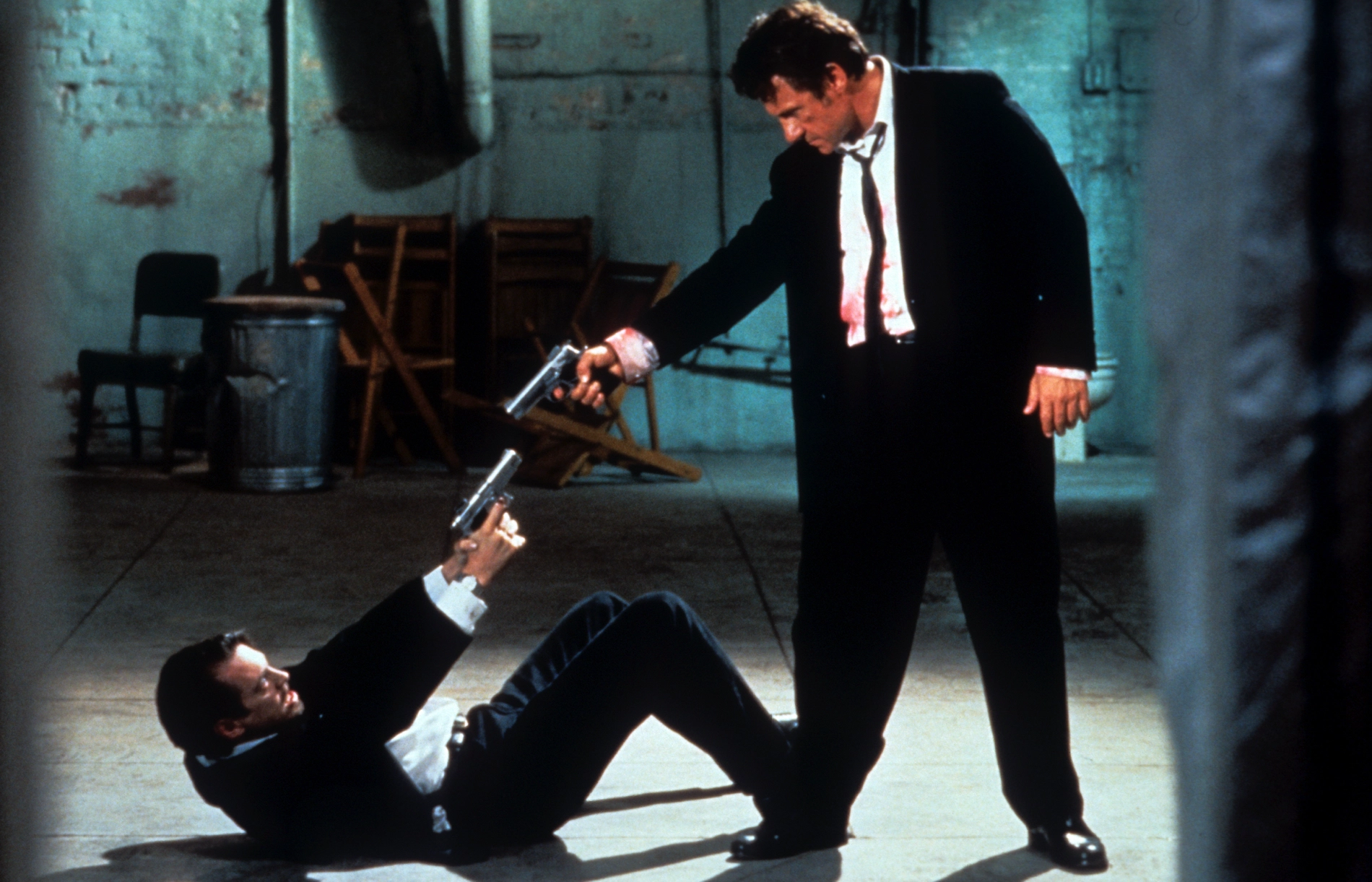
I probably would never call Reservoir Dogs a thriller, but I suspect that Tarantino’s debut made it onto this list because of the tense, claustrophobic atmosphere he built into the script, which was perfectly captured and conveyed by the excellent cast. Reservoir Dogs is the perfect example of how a great work can be realized with really minimal resources. Everything that could be spectacular and action-packed happens off-screen and is essentially outside the story. There are no special effects. There’s no music to heighten the sense of unease. Just an abandoned warehouse and a few guys with colorful aliases who come and go, arguing over who is responsible for the botched job. Superb acting, pauses in the dialogue, and the brilliant exchanges that would later become Tarantino’s hallmark build the entire atmosphere here. And then there’s the razor dance, which still remains one of the most unsettling scenes in the director’s body of work. [Natalia Hluzow]
Park Chan-wook has dedicated most of his career to exploring the dark intricacies of human psychology. The crown jewel of this focused filmography is the Vengeance Trilogy, which showcases the perilous paths and byways of the desire for retribution. The middle part of the trilogy (comprising unrelated stories) is Oldboy, which simultaneously serves as a cult hallmark of Park’s cinema, blending in-depth psychological portraits of mentally warped characters with stylish action inspired by the best of East Asian cinema. Anyone who has encountered the name of the Korean director is likely familiar with the iconic scene where the protagonist of Oldboy faces off against a gang of thugs in a corridor, creatively using kicks and a hammer. However, the 2003 film offers more than just intense action; it also presents a dense criminal-psychological intrigue built around the protagonist’s murky past as he relentlessly pursues vengeance. The gripping narrative culminates in a shocking twist that is arguably one of the most jarring in film history. [Tomasz Raczkowski].
18. American Psycho (2000)
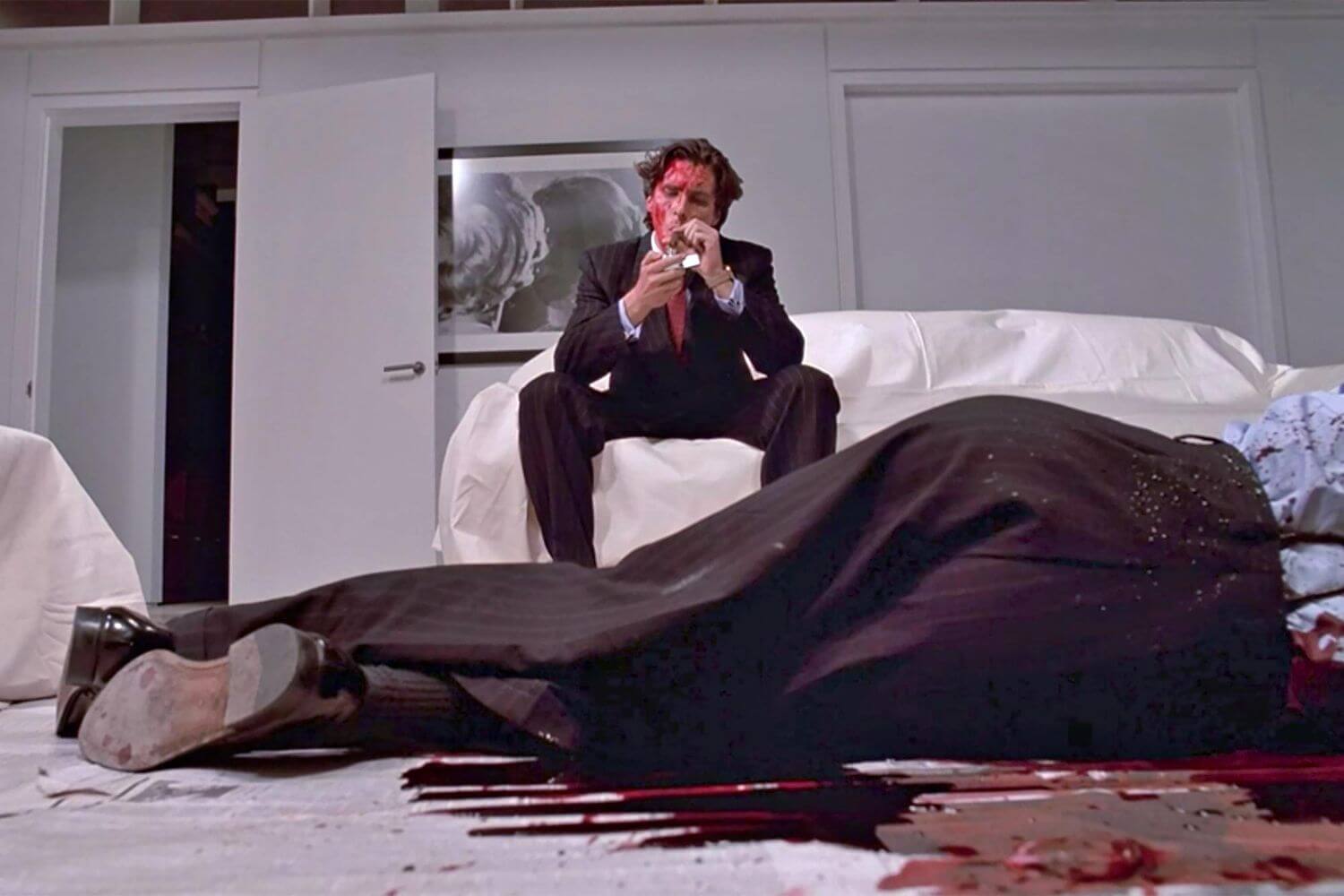
To a film that escapes familiar conventions, despite utilizing many elements typical of the thriller genre. The director navigates the narrative along the line between reality and an unreal, nightmarish dream, at times adopting a style akin to gore cinema. It becomes nearly impossible to discern which sequences were fabricated by Patrick Bateman (Christian Bale) and which genuinely occurred. This deceptive, subjective narrative recalls the one employed by Martin Scorsese in The King of Comedy. Harron plays a game with the audience: the protagonist’s imagination heavily influences the course of events, rendering everything ambiguous and uncertain. [Maciej Niedźwiedzki].
17. The Hitcher (1986)
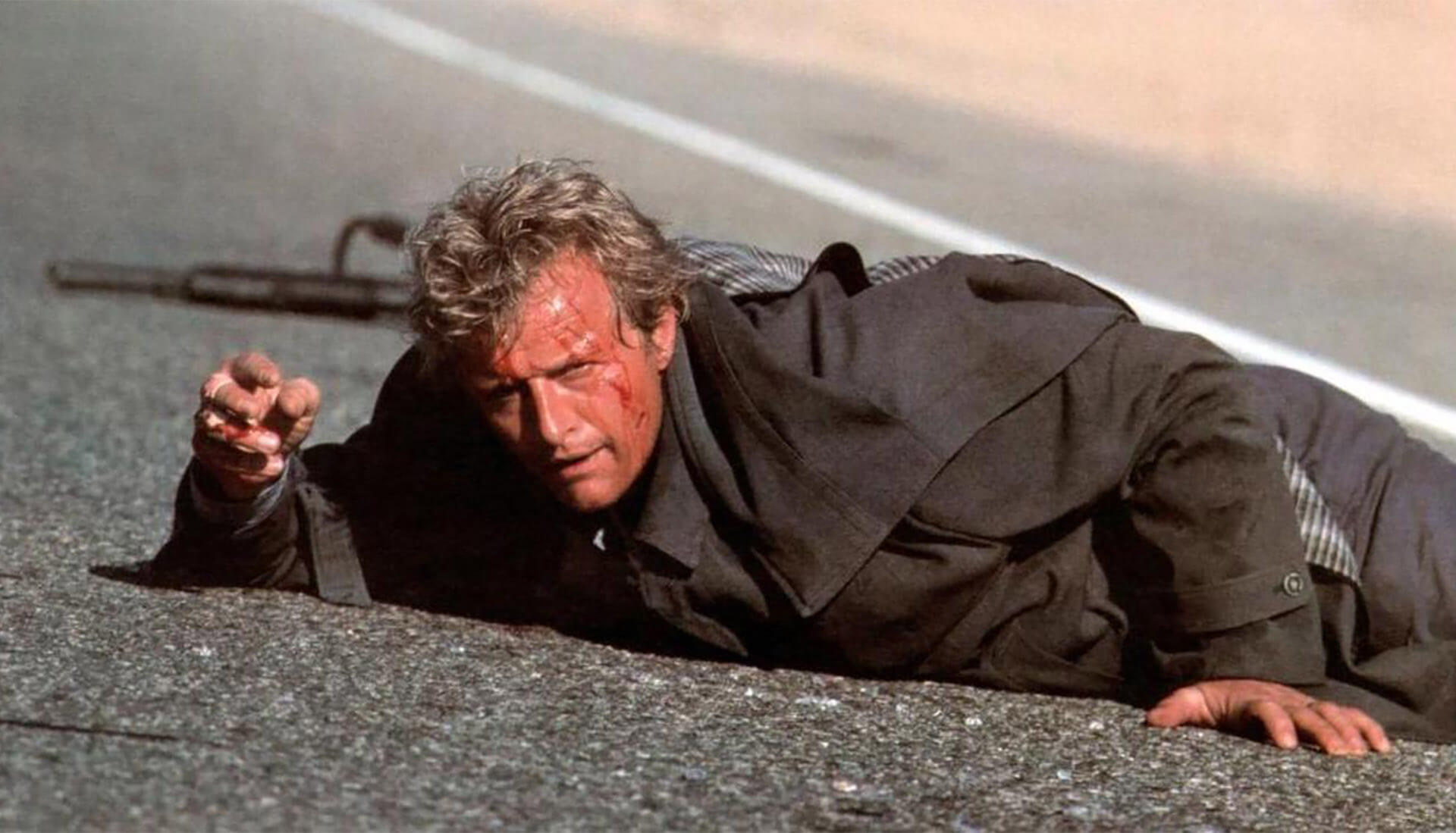
King of the Road among thrillers, Hitchcock on the road, is the pinnacle of thrillers from the 80s, featuring one of the most sinister and enigmatic psychopaths in the history of the genre. The Hitcher combines elements of thriller, horror, and action cinema, with the titular devil incarnate displaying supernatural abilities, his origins and identity remaining unknown. Interpretations have varied, but one could argue that he is a special agent, an expert in killing, which prevents the police from gathering information about him. Rutger Hauer in this role is unmatched, building the film’s atmosphere, aided by John Seale’s shots of the desolate, desert highway and the pulsating sounds of Mark Isham’s synthesizer percussion. The tension is palpable from start to finish, and the bloody scenes linger more in the viewer’s imagination than on screen. The debuting Robert Harmon accomplished a task worthy of the masters of suspense. [Krzysztof Dylak]
16. The Prestige (2006)
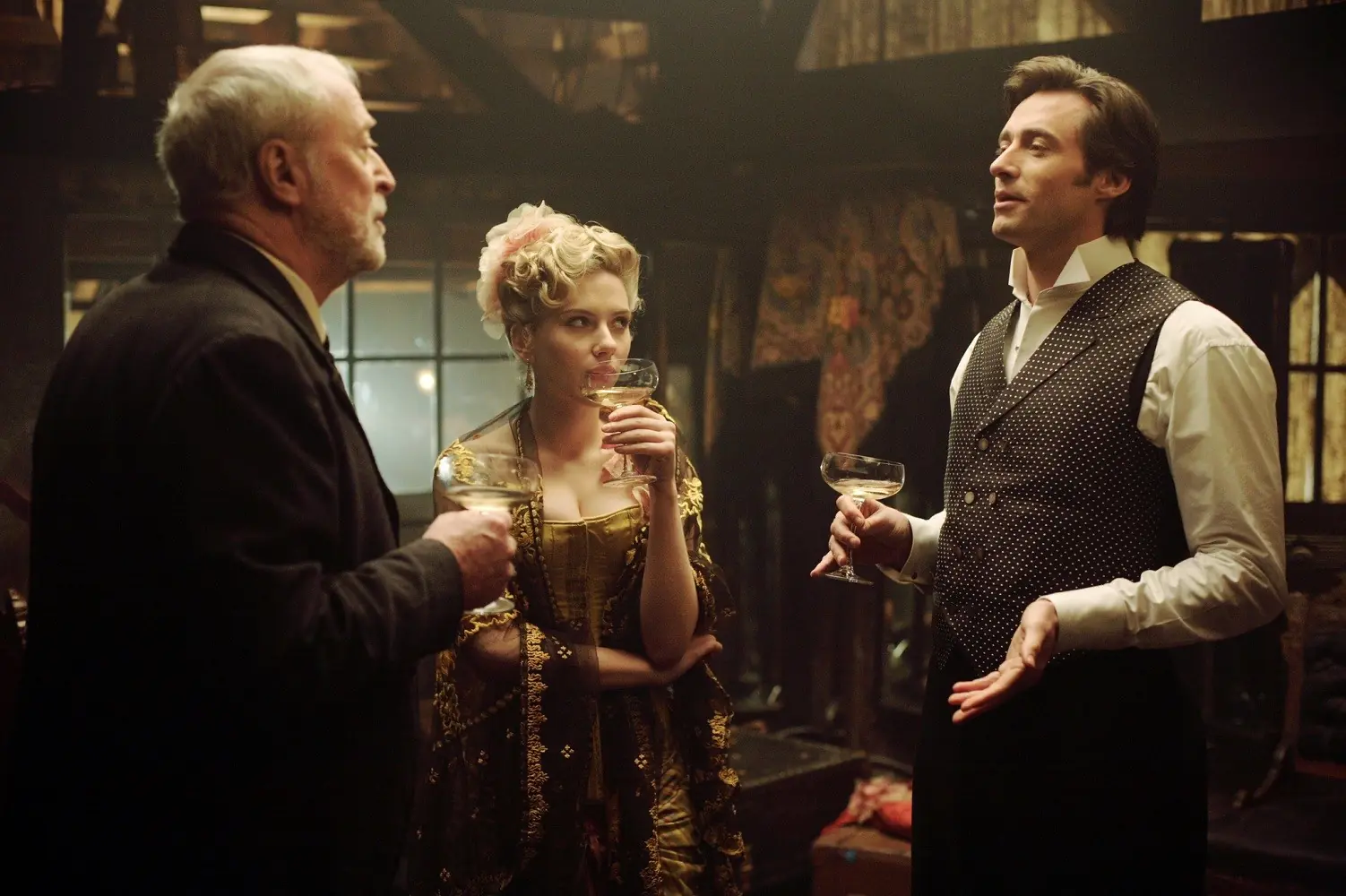
In Christopher Nolan’s The Prestige, the elements of a good magic trick are repeatedly emphasized, and we quickly realize that all its components (including the beautiful woman distracting us) are present within the film itself. Nolan crafts a remarkable thriller about the destructive rivalry between two men, never getting closer to the emotional core of his unattainable model—Michael Mann’s Heat. [Filip Pęziński]
15. The Usual Suspects (1995)
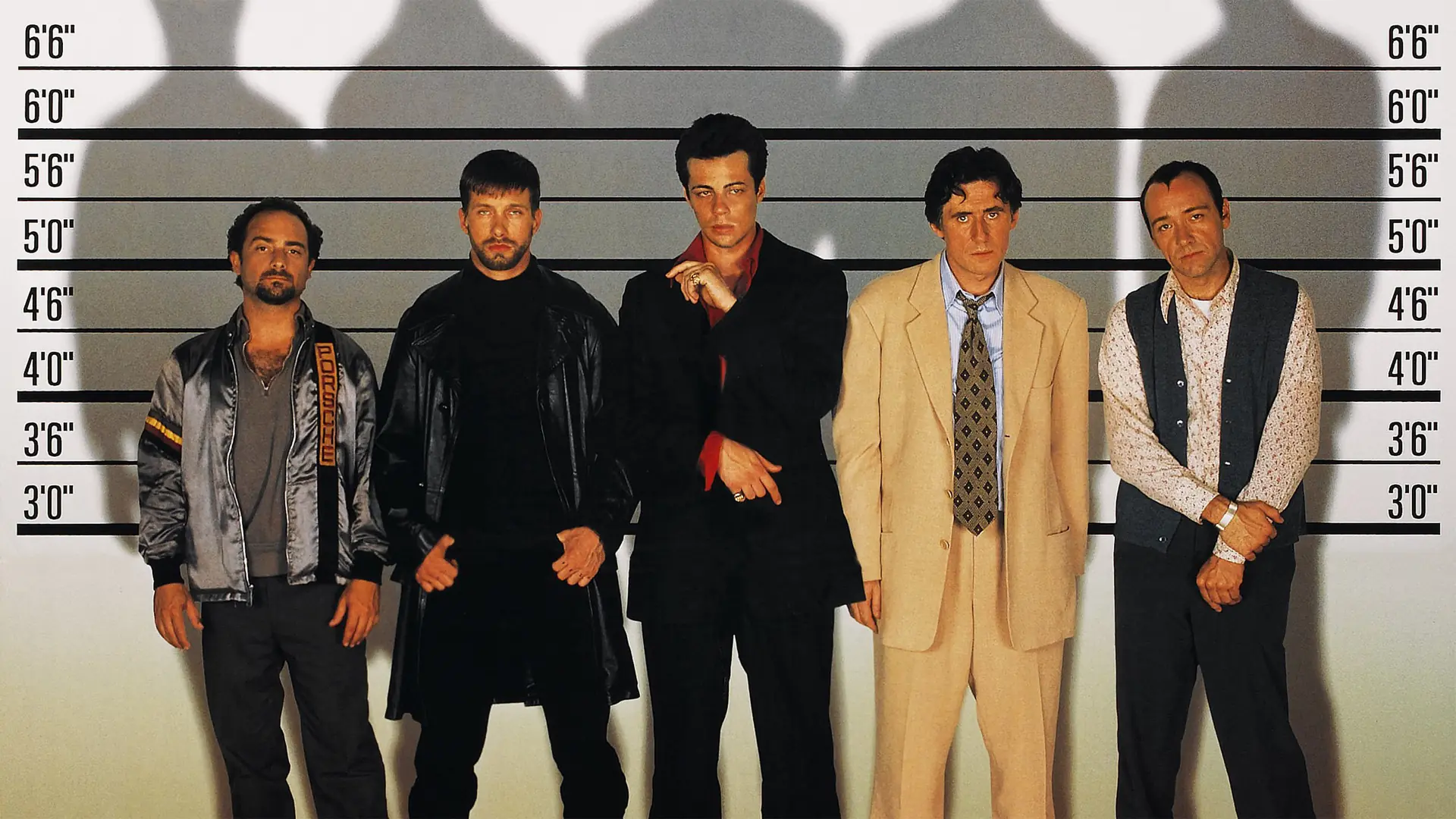
Bryan Singer created pure gold. The Usual Suspects is a Chinese box, revealing new corners with each viewing. When watching this film for the first time, the ending knocks you off your feet, and no one can deny Spacey’s talent, as he crafted Kint into a gem just like Bryan Cranston did with Walter White. During subsequent viewings, you won’t get bored, as following the action again and knowing the surprising finale allows you to fully appreciate the small, scattered hints in the screenplay that lead to it. That’s why every encounter with The Usual Suspects evokes incredible emotions—both the first time and every time after. [Agnieszka Stasiowska].
14. Zodiac (2007)
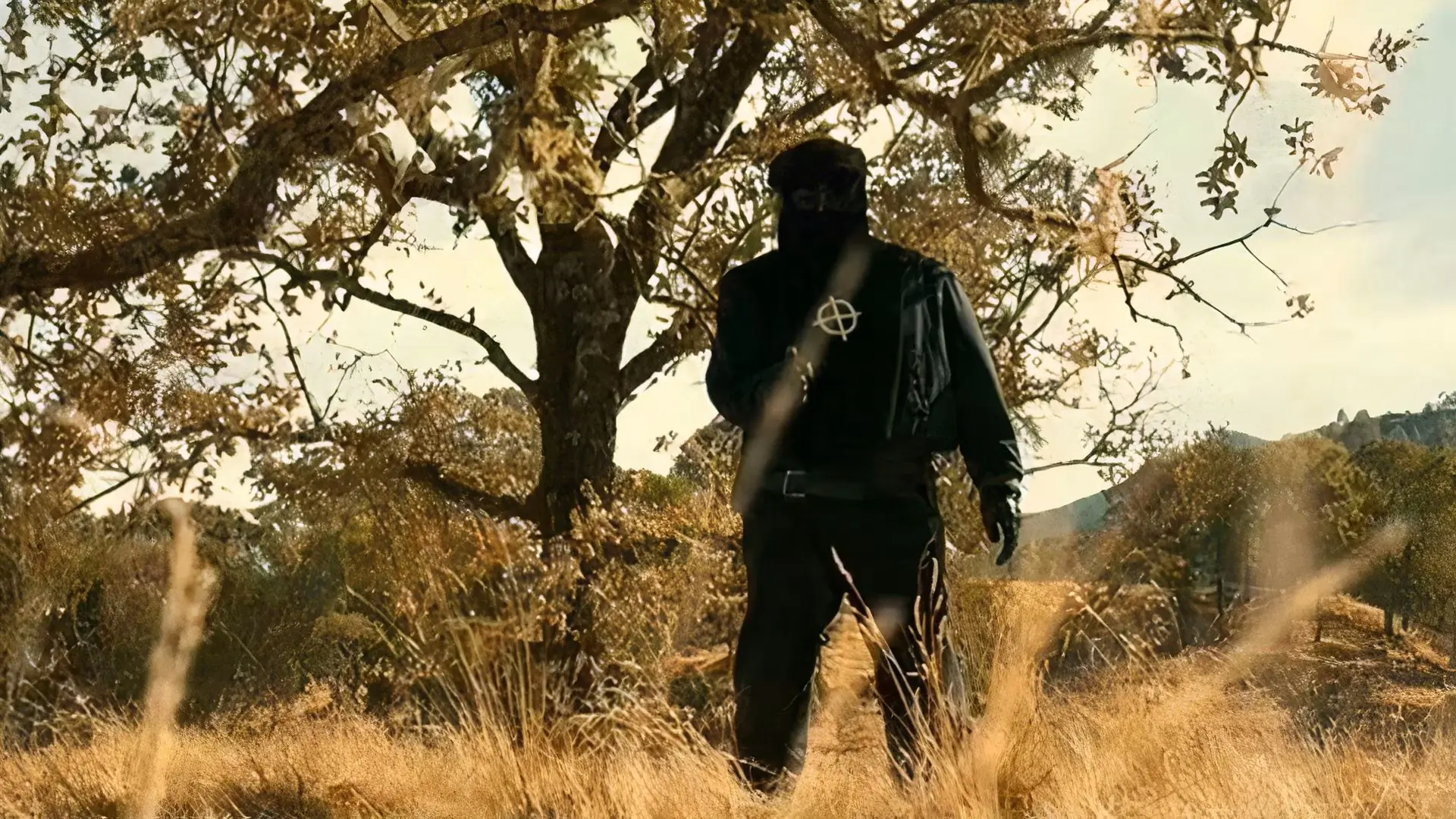
Without a doubt, this is my favorite film by David Fincher. The story of the Zodiac’s hunt is fascinating and marked by many dark moments, and Fincher’s work perfectly captures how tedious the investigation was and how much it cost those who conducted it. Every scene involving the titular killer (whose face we obviously never see) chills the blood, especially the sequence by the lake (more terrifying than many horror films) and the scene on the highway. “Before I kill you, I’ll throw your baby out the window.” Chills. Great cinema. [Łukasz Budnik].
13. Memento (2000)
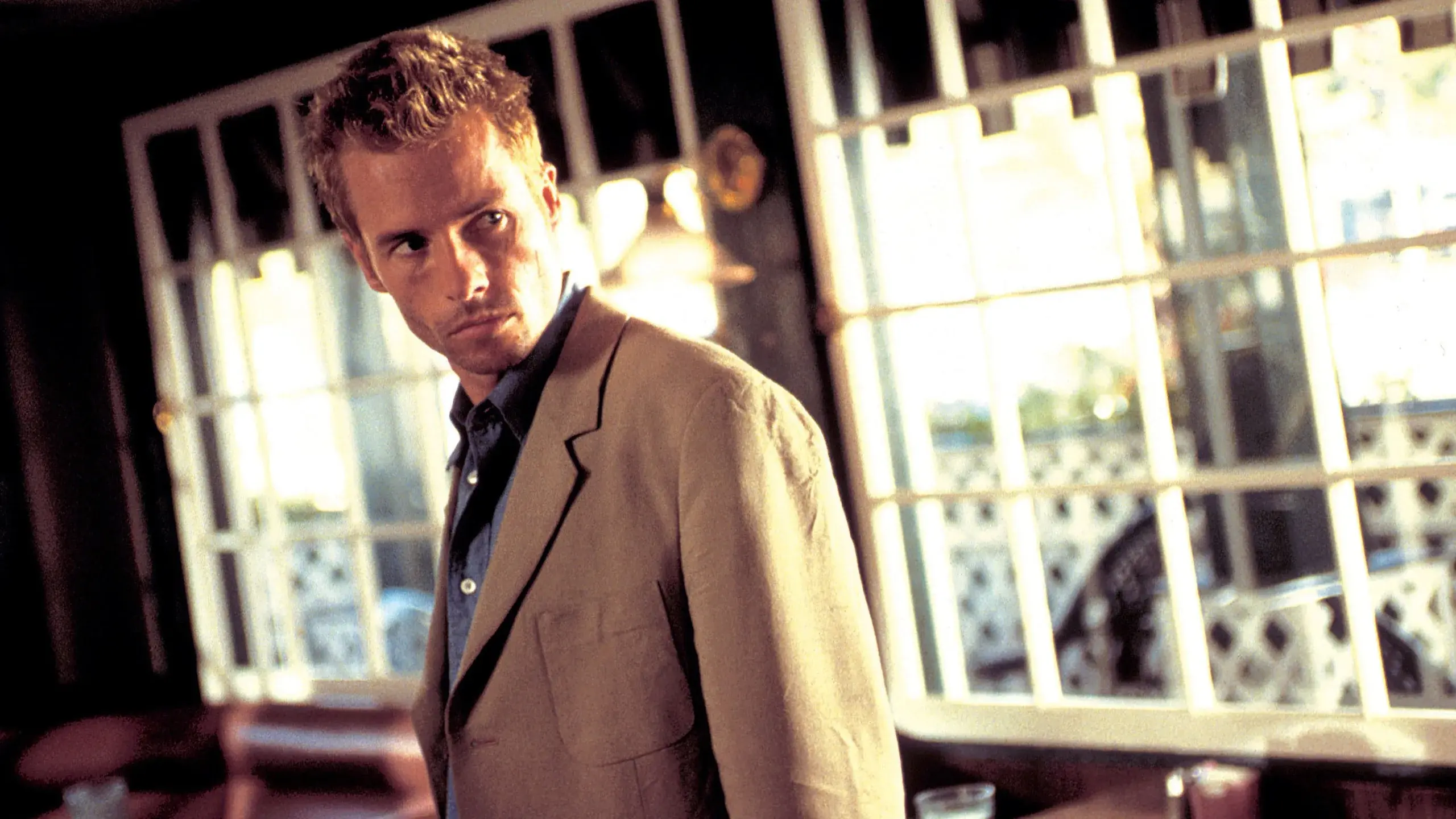
The film that opened the doors for Christopher Nolan in Hollywood remains one of his greatest achievements and, in my view, one of the best thrillers of the twentieth century. Nolan builds a narcotically captivating story around a simple yet narratively effective and incredibly fresh idea about the mysteries governing our minds. The magnetic Guy Pearce is at the center of it all. [Filip Pęziński].
12. Fargo (1996)
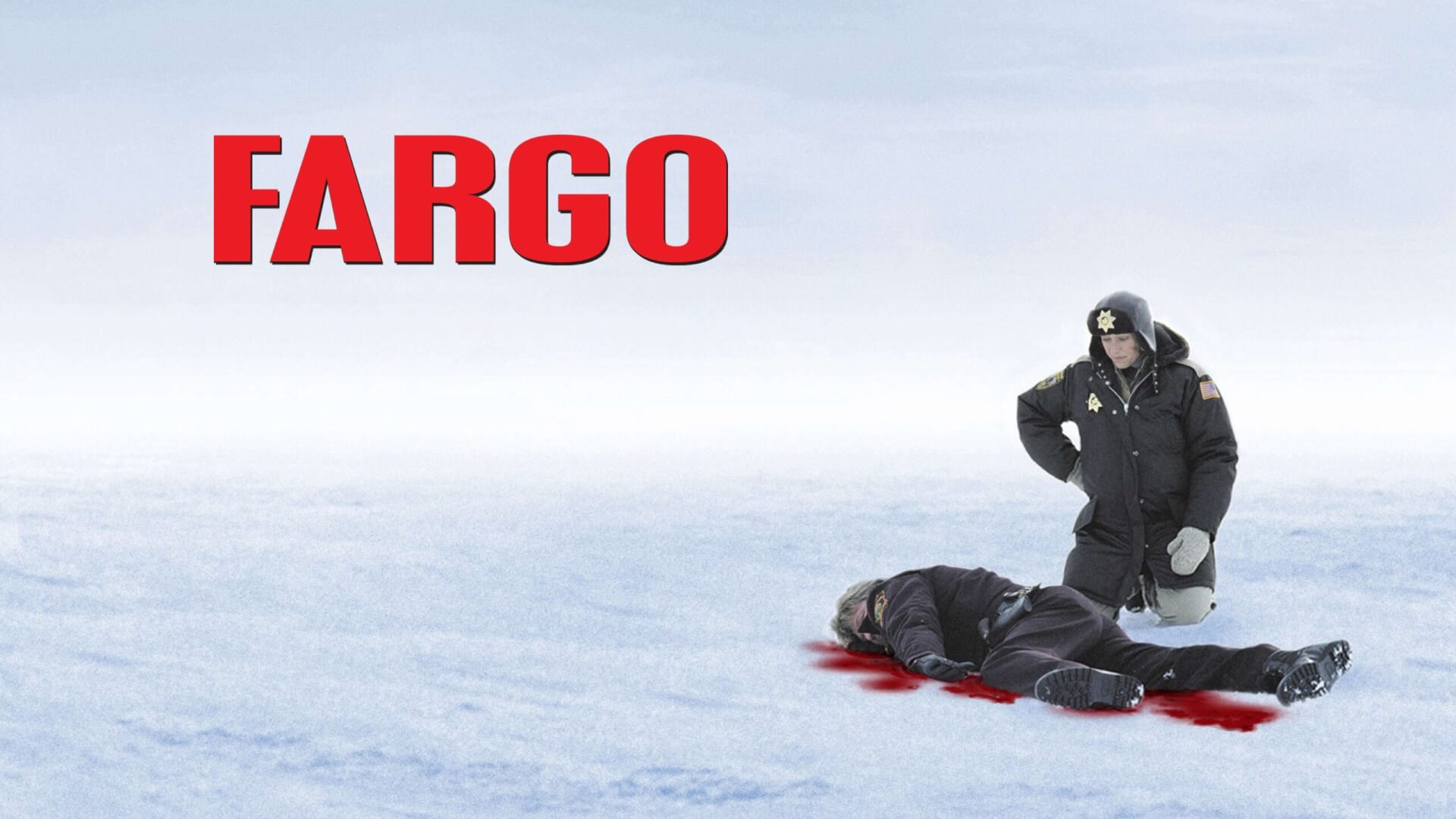
A beautifully flawed criminal intrigue, a staged kidnapping, a suitcase of money, violence, greed, murder, clumsy calculation, human pettiness, and disgusting wickedness. In the humorous take by the Coen brothers, it’s quite enjoyable to chuckle at all of this, but the collision of the ironic narrative with serious themes opens entirely new and unpredictable avenues for analysis. A black comedy, a human comedy, a tragic farce, and a moral parable all rolled into one. It’s a bit of everything, and altogether, it stands as one of the masterpieces of 1990s cinema. [Maciej Niedźwiedzki].
11. Misery (1990)
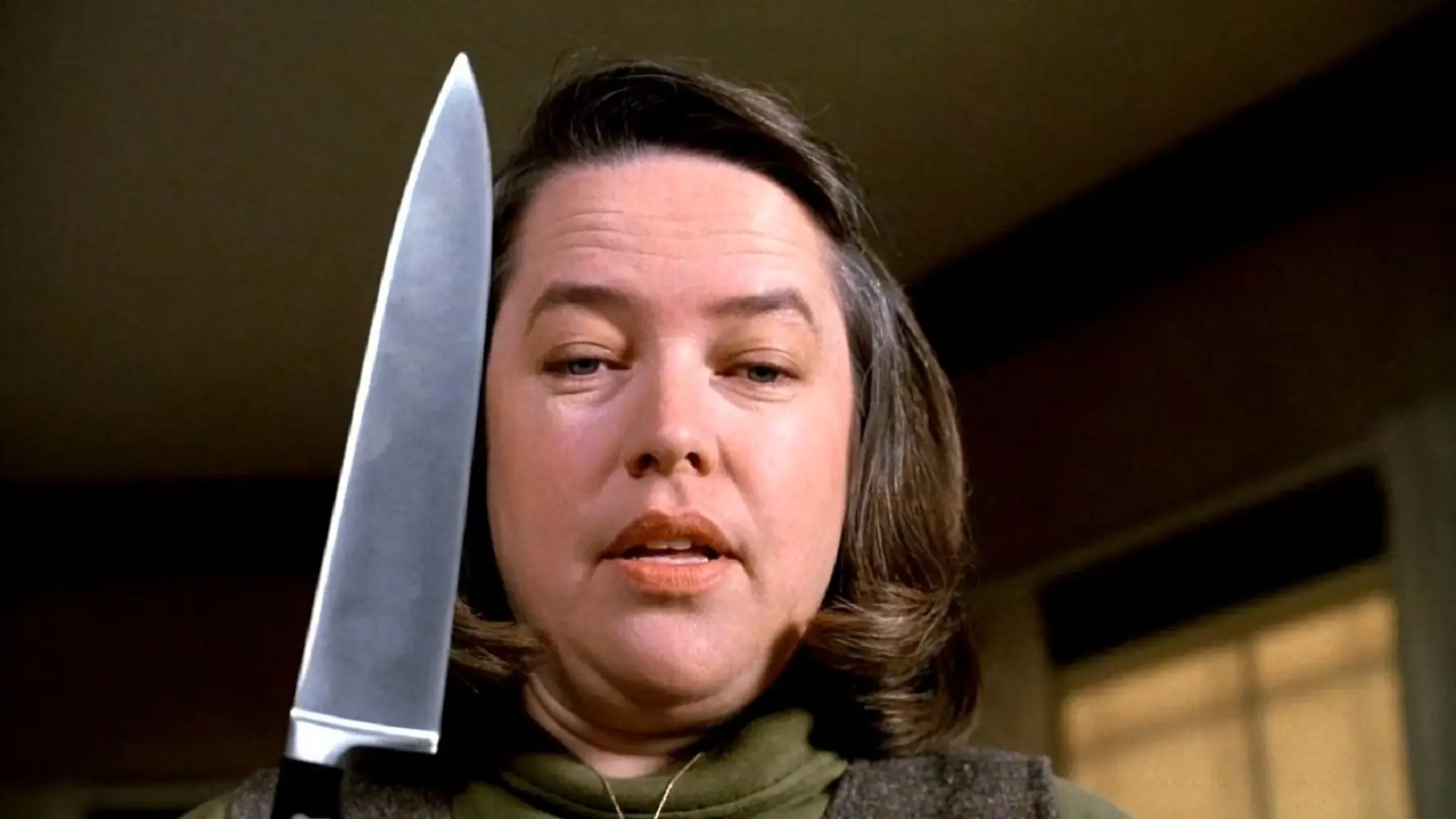
James Caan and Kathy Bates. Paul Sheldon and Annie Wilkes. The victim and… his most devoted fan. The iconic image of Kathy Bates as Annie, wielding a hammer with a cold, yet absolute madness in her eyes, is as well-known as the image of Nurse Ratched. Annie Wilkes is, after all, a complete psychopath, willing to do anything to impose her will—of course, for a righteous cause. Rob Reiner’s film, based on Stephen King‘s novel, gifted the world one of the most repulsive characters in cinema, and Kathy Bates embodied this role in a way that no one else could. It’s terrifying to watch, yet impossible to look away. [Agnieszka Stasiowska].
10. Shutter Island (2010)
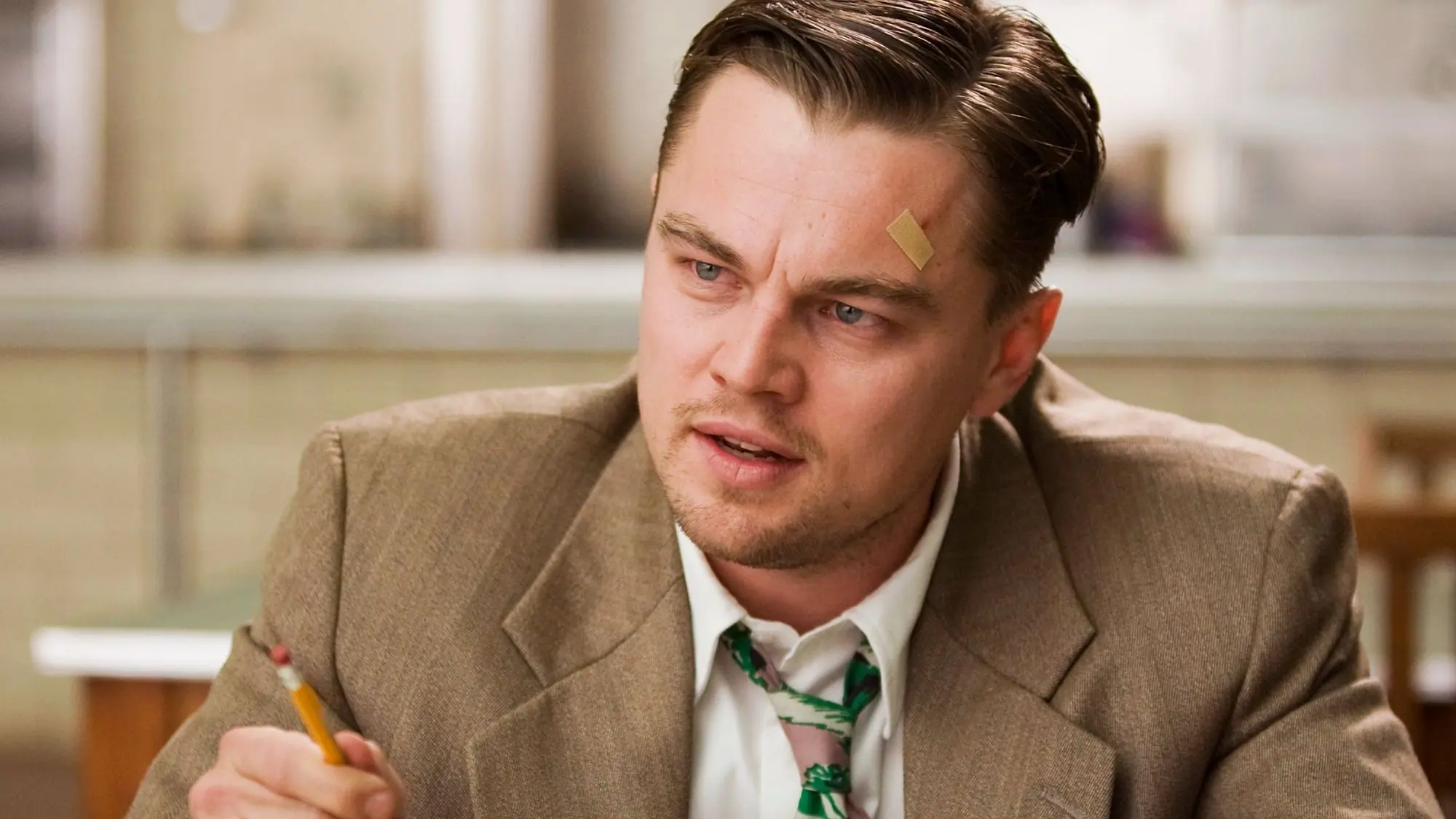
Even a master can stumble sometimes, but the truth is that Martin Scorsese’s Shutter Island has no weak points. The story is strong, as the very concept of an investigation in a psychiatric facility evokes a thrill of excitement. The acting is powerful, with names like DiCaprio, Ruffalo, von Sydow, and Kingsley ensuring a high standard. The script, crafted by Laeta Kalogridis, skillfully balances between gut-wrenching emotion and genuine horror, not letting the audience catch a breath for a moment. And then there’s that final line, which wasn’t even in Lehane’s novel, that DiCaprio delivers like a punch to the viewer’s face. [Agnieszka Stasiowska].
9. Mystic River (2003)
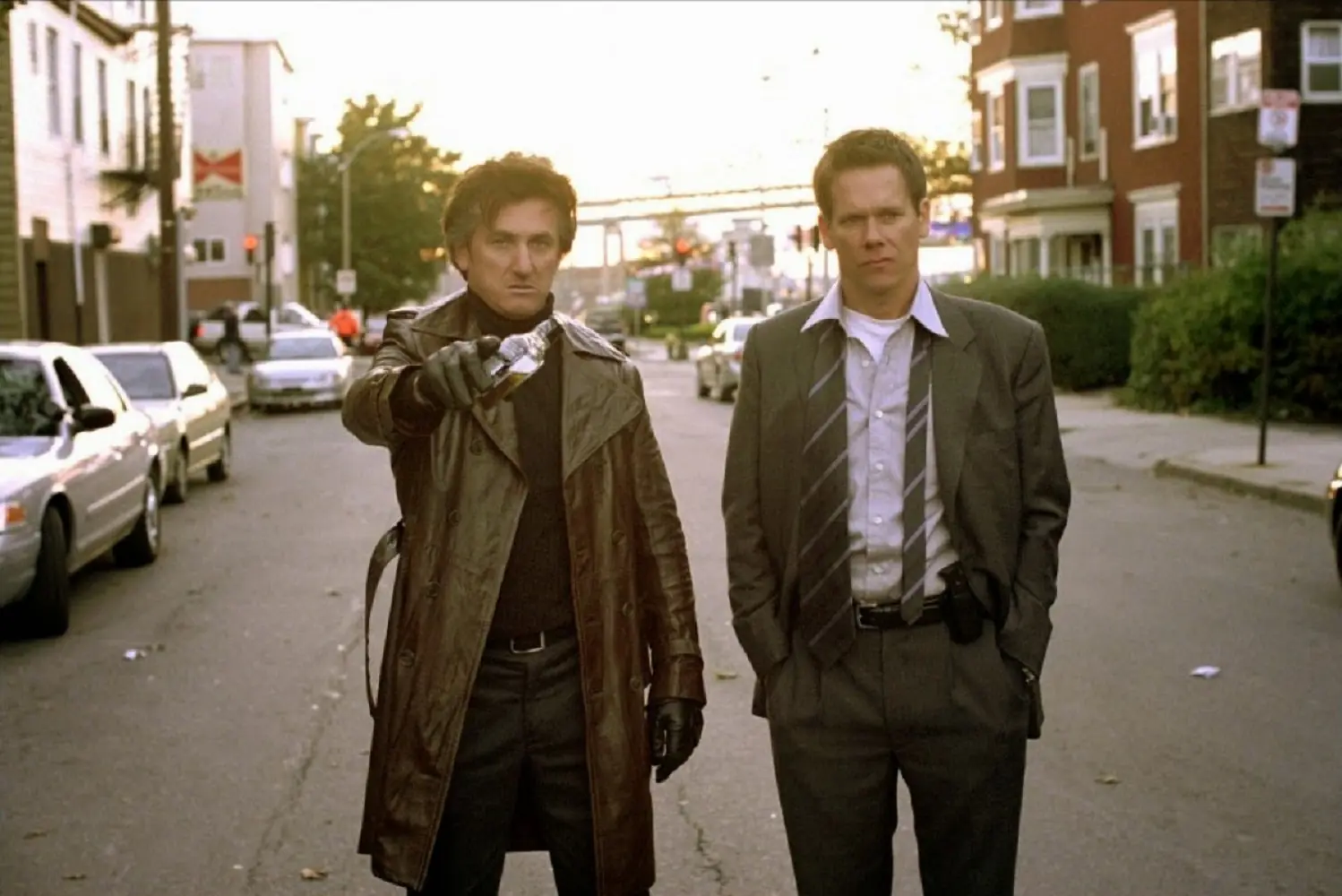
Boston, the 1970s. The height of a sunny, warm, lazy day. Three teenagers, Jimmy Markum, Sean Devine, and Dave Boyle, are writing their names on the fresh asphalt. When it’s the last boy’s turn, a muffled sound of an approaching car and opening doors can be heard in the background. “I’d like to ask you something,” a mature, assertive male voice calls out. “Is it allowed for you to vandalize public property?” The boys turn around and obediently, though reluctantly, approach the stranger; Dave stops and leaves his name only partially written. “Where do you live?” the next question comes, and only he gives a somewhat distant location. A moment later, he’s already in the car with a second man, looking back through the windows at his friends with terrified eyes. The strangers are clearly in a hurry. The car drives off and fades away. The last thing that remains with us is the sight of those three names written on the sidewalk, the last one forever unfinished. This subtly metaphorical image, appearing at the very beginning of the work, lingers in the viewer’s mind throughout the film and long after it ends. The scene described above, in which it appears, is full of underlying tension and unspoken anxiety, achieved with a minimal number of creative means. Clint Eastwood, the director of Mystic River, knows perfectly how to evoke a deep, almost crushing emotional charge from seemingly intimate and unremarkable scenes. [Przemysław Brudzyński].
8. Psycho (1960)
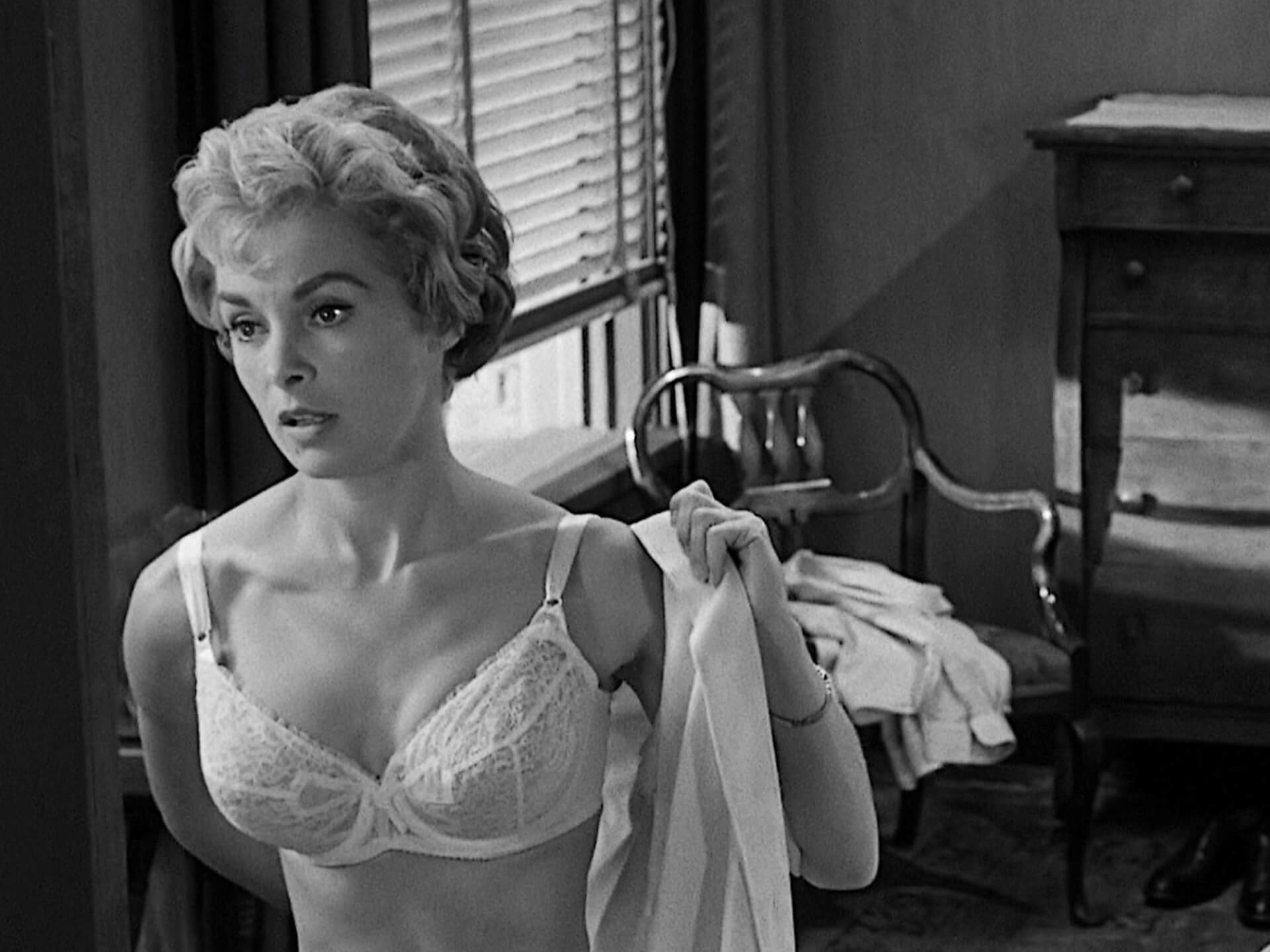
This marks the absolute peak of Alfred Hitchcock’s career. A work that was appreciated then and remains so today—despite being in black and white, it was ahead of its time and continues to impress even now. It also represents Hitchcock’s greatest commercial success, as he was also the producer—earning over $30 million against a budget of $800,000. The director did not create this work due to interesting characters, yet Anthony Perkins as Norman Bates has become an icon of cinema and one of the best-crafted villains. Meanwhile, the murder scene in the shower is a groundbreaking moment not only in the film but in the entire history of cinema. The film is based on the novel by Robert Bloch, which draws inspiration from real events—the actions of serial killer Ed Gein. Surprisingly, the film was shot like a television movie—cinematographer Robert Burks was replaced by television cameraman John L. Russell. This understated and modest visual approach perfectly suited the story, in which the most dangerous demons hide beneath a mask of normality. [Mariusz Czernic].
7. Jaws (1975)
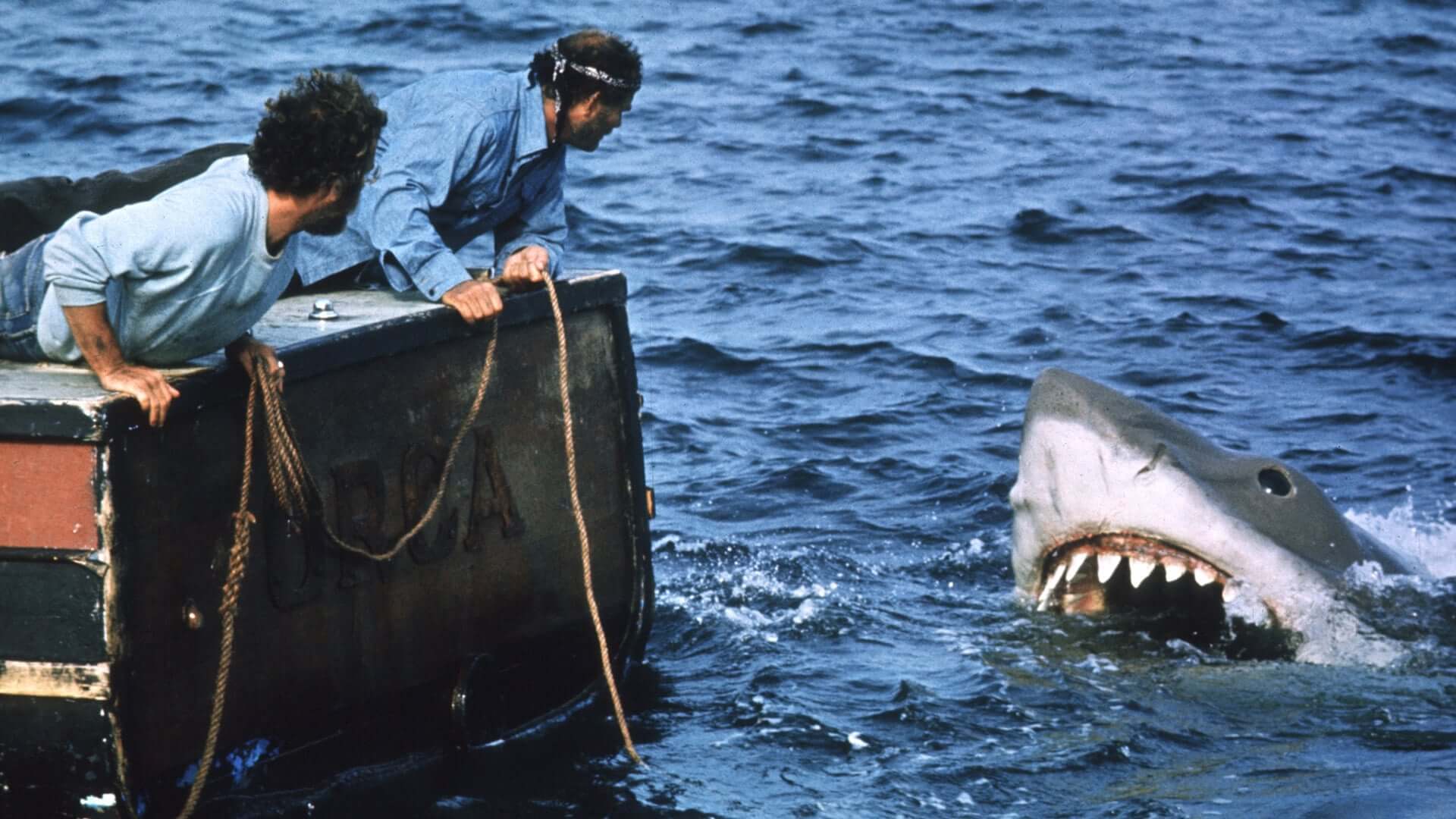
Comparing Jaws with Spielberg’s later works, one can primarily see the joy in instilling fear in the audience, without any special concern for political correctness or adherence to so-called values. Despite the happy ending and the softening of the characters of Hooper and Brody’s wife compared to the novel, Spielberg did not coddle the audience as he tended to do in the majority of his later films. Jaws was meant to scare—and it still does today, although not as intensely as it did in the 1970s. The timeless value of this film lies in its referential way of building tension, which could serve as a ready-made textbook for aspiring directors. [Adrian Szczypiński].
6. No Country for Old Men (2007)
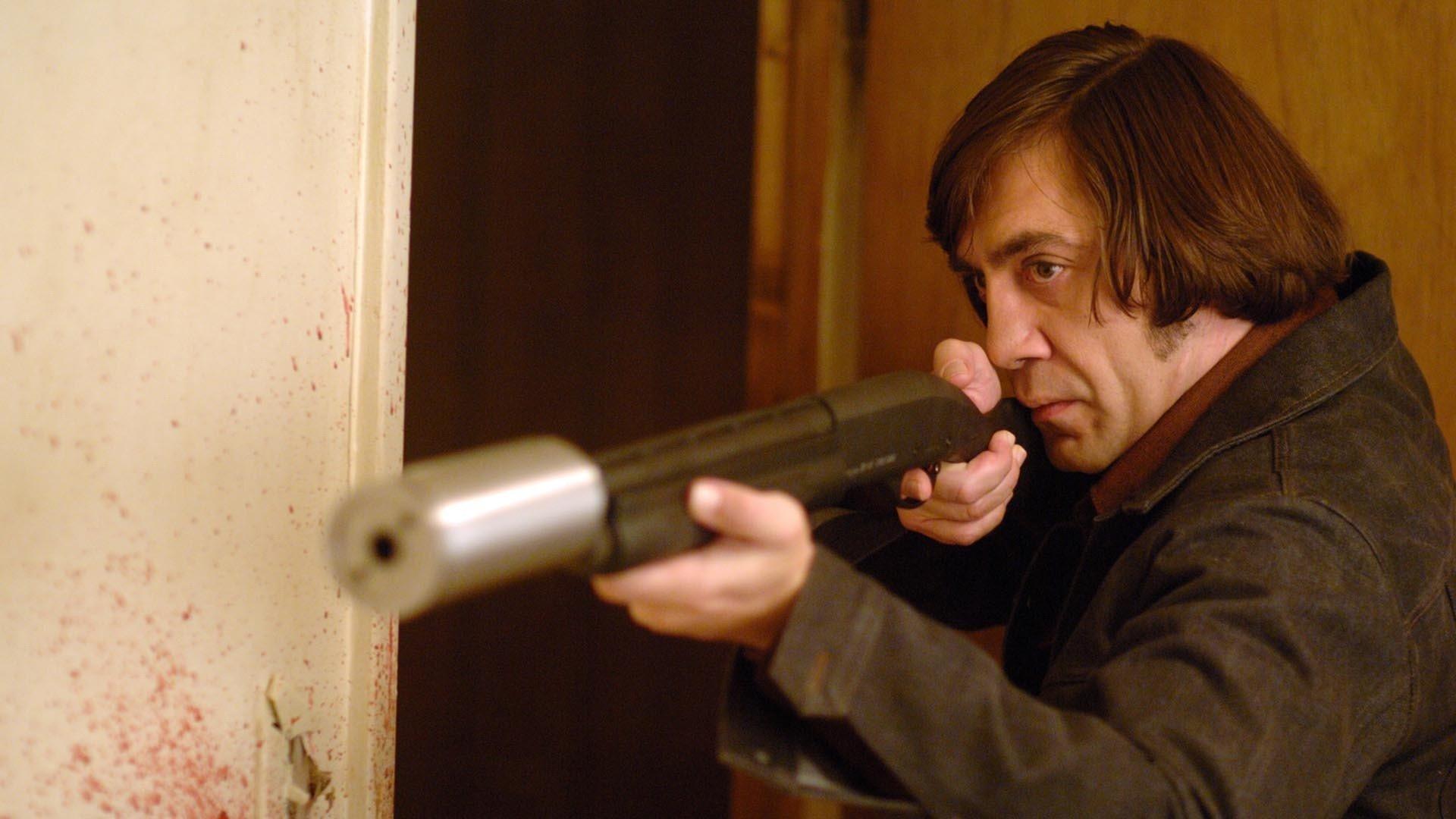
A thief, a killer, and a sheriff live in a world where nothing is entirely certain, familiar, or safe, even though they build their lives from these predictable blocks. The narrator of the story knows that he knows nothing. No one knows when they will find fortune. No one knows when they will die. No one knows when the moment will come to admit to oneself that one’s fate usually does not depend on one’s own will. Even humility, kindness, adherence to principles, and patience—if they become life’s guiding signs—will not lead to knowing. It simply is. It’s hard to speak of any overarching principle governing fate—God? The Devil? Chance? Time? The anxiety caused by the lack of answers and the impossibility of outsmarting fate usually concerns no one. Why choke on existential bitter pills unnecessarily? Some, however, like the sheriff, will take off their hat, swallow hard, look you straight in the eye, and consciously admit: “Alright, I will be a part of this world.” Though this is no longer a country for someone like him. Exceptional cinema! [Rafał Oświeciński].
5. Inception (2010)
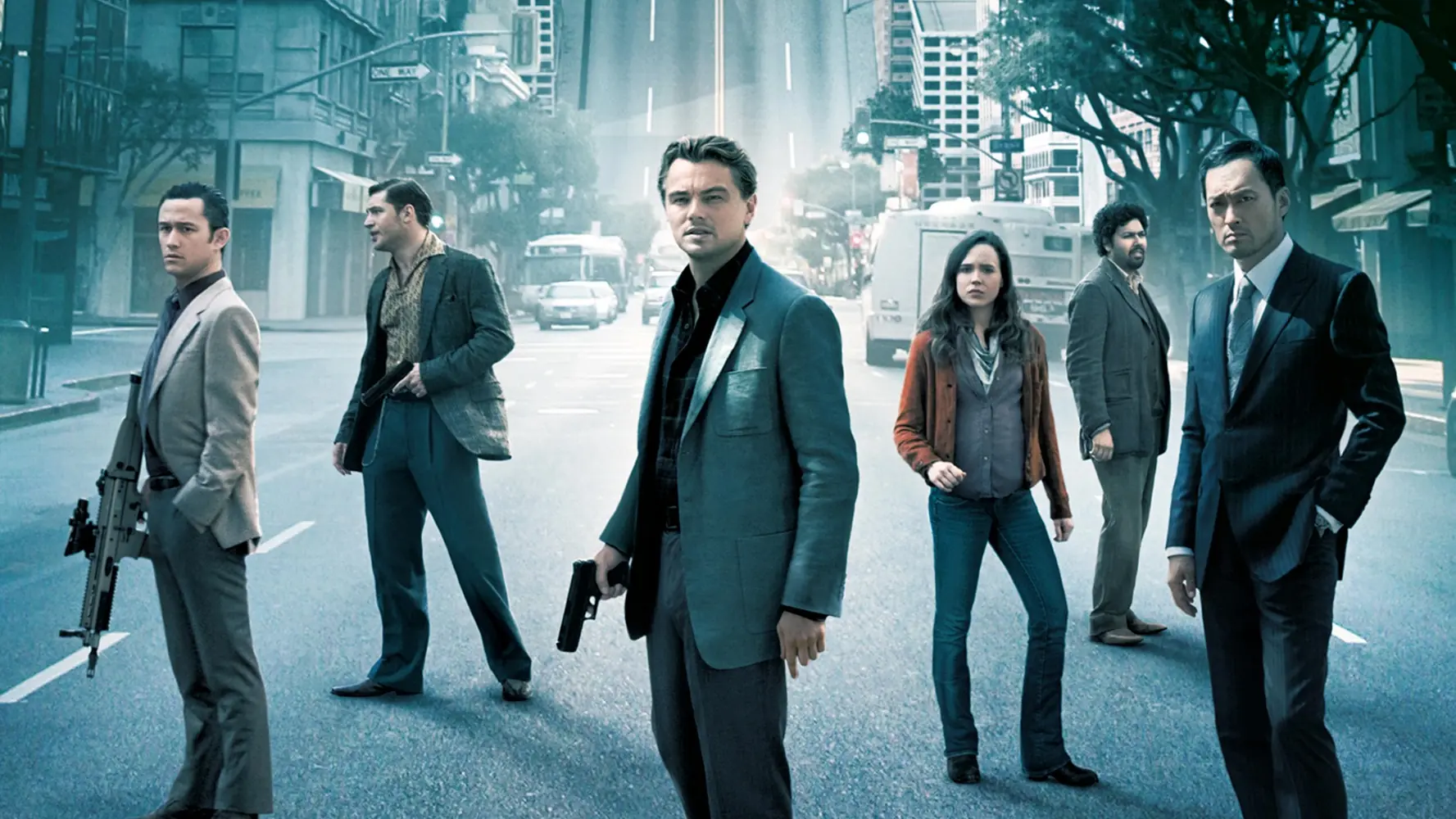
A multi-layered story about a group of specialists whose mission is to implant specific ideas into the mind of their target by infiltrating their dreams is one of the most intriguing and bizarre propositions in Christopher Nolan’s body of work, which certainly showcases his wealth of captivating ideas. Inception combines so many different elements that it’s hard to categorize it into any single genre. It is both a tense, action-packed thriller and an unconventional science fiction film that straddles the line between reality and dreams, a reversed heist movie, and a textbook example of self-referential cinema. What distinctly stands out, however, is Nolan’s exploration of the human subconscious, filled with traumas, desires, memories, and illusions that shape our inner reality, which is no less real than the tangible world around us. In praising Inception, one cannot overlook the fantastic cast, Hans Zimmer’s monumental score, the perfectly chosen leitmotif from Édith Piaf, and the absolutely intentional special effects that underscore the film’s meaning, most of which were, of course, executed on set. [Natalia Hluzow].
4. The Game (1997)
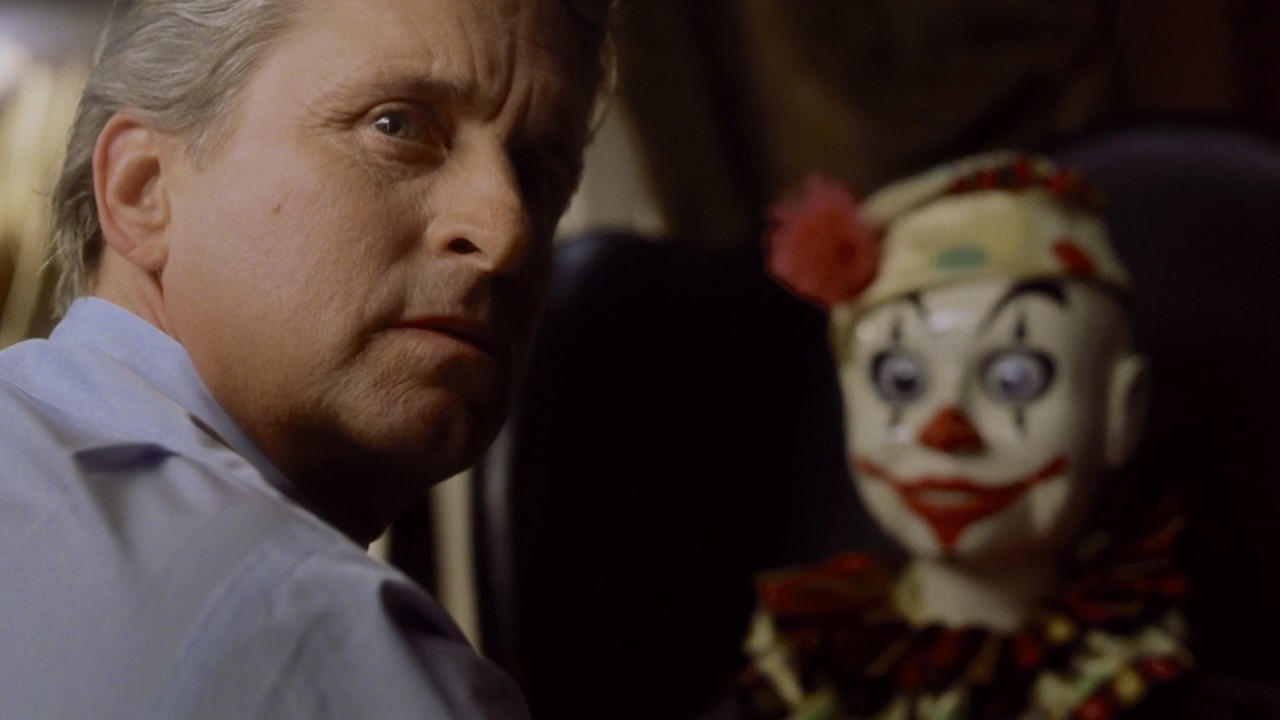
Originally, Fincher intended to shoot The Game before Se7en. However, due to Brad Pitt being available earlier, Fincher changed his plans and postponed The Game for later. I’m very curious how the film’s trajectory would have been different had the original shooting order been maintained. It’s undeniable that the masterful Se7en immediately shaped expectations for the director’s next film. Fincher set the bar very high for himself, and audiences anticipated another masterpiece. Instead, they received an incredibly well-crafted, paranoid thriller that is engaging and suspenseful right to the end, which, in contrast, had no grand ambitions—it didn’t expose evil or comment on the flawed morality of humanity. Perhaps this is why it didn’t achieve the same level of notoriety. Unjustly so, as I believe The Game is no less a masterpiece, but of an entirely different format. [Jakub Piwoński].
3. Prisoners (2013)
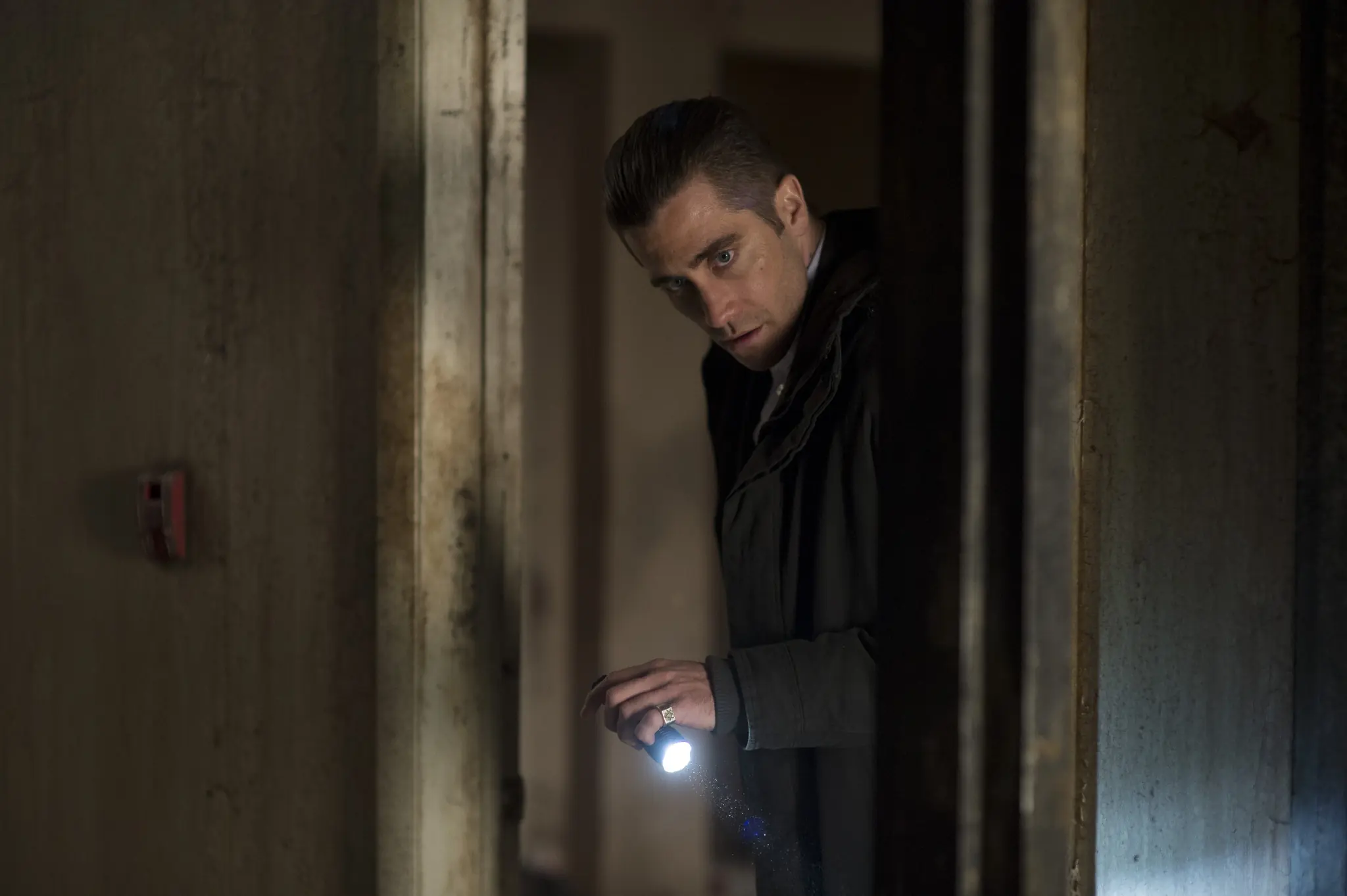
I’m very pleased to see such a high position for this film, as I regarded it as an underrated gem, and here we are! Prisoners is my favorite among Denis Villeneuve’s films. It’s a fascinating, dark exploration, much like Zodiac, showing how destructive an investigation can be (interestingly, Jake Gyllenhaal appears in both films). The cast is excellent, with outstanding performances. Hugh Jackman is superb here, as is Paul Dano—their scenes together keep you on the edge of your seat. To top it all off, there are the remarkable cinematography by Roger Deakins. [Łukasz Budnik].
2. The Silence of the Lambs (1991)
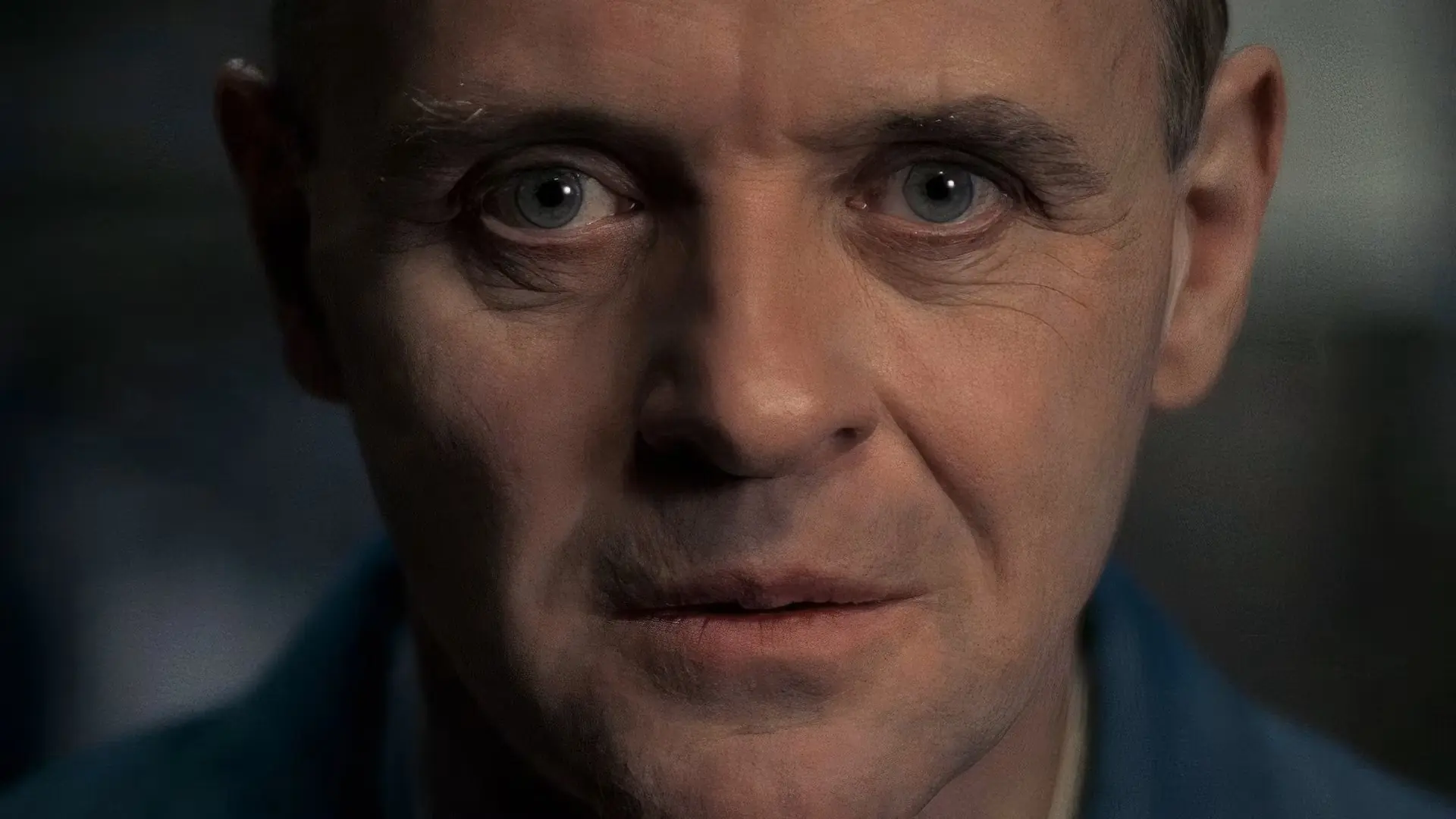
How many times have we written about The Silence of the Lambs? What new insights can be offered? Perhaps nothing. Jonathan Demme’s masterpiece has long dominated such rankings, and surely nothing will threaten its status for a long time. The screenplay is based on the excellent novel by Thomas Harris of the same title. The Silence of the Lambs tells the story of FBI trainee Clarice Starling, who is asked to interview the infamous serial killer. Hannibal “The Cannibal” Lecter will not answer her questions, as he eludes all classifications and scorns conventional forms. Yet he will converse with Clarice, despite everything…
Naturally, The Silence of the Lambs is a showcase for Sir Anthony Hopkins. His performance is unparalleled, to the point that today, when observing that charming older gentleman on social media, one still feels a slight discomfort every time he whips up a meal. But The Silence of the Lambs, contrary to appearances, is not solely about Dr. Lecter. There is no yin without yang, and Ted Levine deserves full credit for his role as Buffalo Bill. The blue eyes of Gumb conceal just as much madness as the cold gaze of Dr. Lecter, and Levine invokes as much unease as the infamous Cannibal. Agent Starling learns early on that evil resides within each of us, not just in the mad surgeon, not only in the frustrated maniac, but also in her seemingly calm boss, and within herself. The lambs never truly stop screaming, Clarice. [Agnieszka Stasiowska].
1. Se7en (1995)
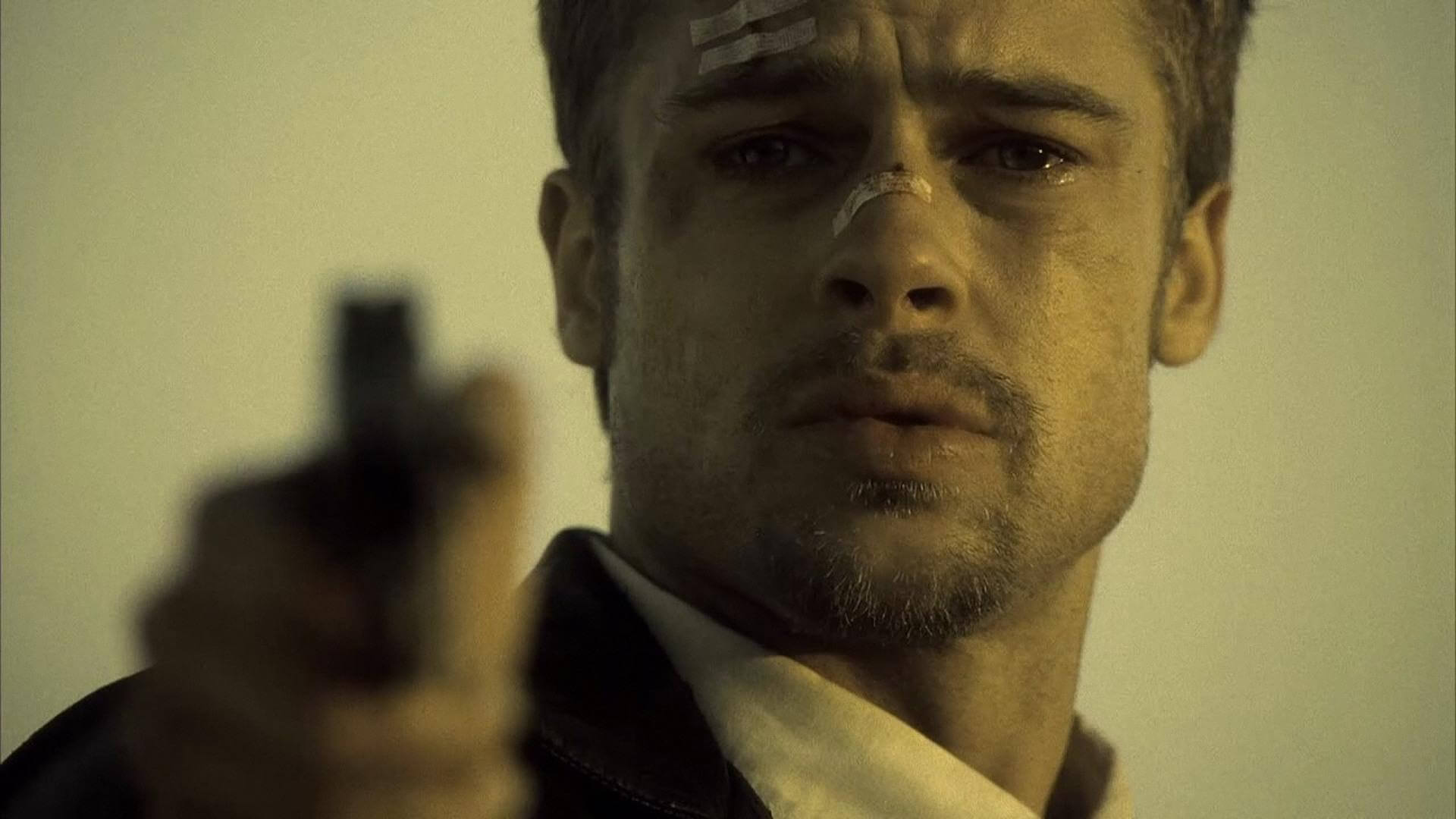
The film is considered by many cinephiles to be David Fincher’s crowning achievement and, as this poll demonstrates, one of the best thrillers in the history of the genre, which has set the direction for the entire neo-noir movement. Although there were no shortage of black crime films before 1995 and there are still many today, even among them, Se7en stands out as an exceptionally dark, raw, gloomy, and depressing work—both in its visual style and in its message.
The investigation conducted by two entirely different yet perfectly complementary partners, portrayed with minimalist finesse by Morgan Freeman and Brad Pitt, is just one element that attests to the quality of Se7en. What frightens and excites most in Fincher’s film is the religiously charged mission of a psychopathic killer who selects his victims according to the seven deadly sins, compelling the detectives, the public, and us, the viewers, to contemplate not only who will be next and in what elaborate manner they will be killed, but also the moral implications behind each crime.
The apex of the self-proclaimed scourge of vice’s brutal crusade against our world is, of course, the spine-chilling climax—written, directed, shot, and acted so masterfully that we almost physically feel the pain of the main character as he crumbles apart over the infamous box and its contents. Even more painfully, this scene, regarded as one of the greatest plot twists in cinematic history, leaves us without catharsis, without any consolation. Evil has triumphed. The world is not a beautiful place. And after watching Se7en, it’s genuinely hard to say whether it’s worth fighting for. [Natalia Hluzow]
EDITORIAL team
We're movie lovers who write for other movie lovers!


